13600K vs 13700K: which Intel chip is best for you?
Choosing between the 13600K vs 13700K? We've got you covered

Efficiency Cores: 8
Performance Cores: 6
Threads: 20
Base Clock (E-Cores): 2.6 GHz
Base Clock (P-Cores): 3.5 GHz
Boost Clock (E-Cores): 3.9 GHz
Boost Clock (P-Cores): 5.1 GHz
Cache: 68MB Total
TDP: 125W
The Intel Core i5-13600K puts up some truly impressive numbers against the top CPUs competing chipmakers have to offer, making this the best processor for general users, though it is still more expensive and soaks up power like a sponge.
Pros
- Great overall performance
- Excellent price
- DDR4 and DDR5 support
Cons
- Power hungry
- Price increase over previous generation
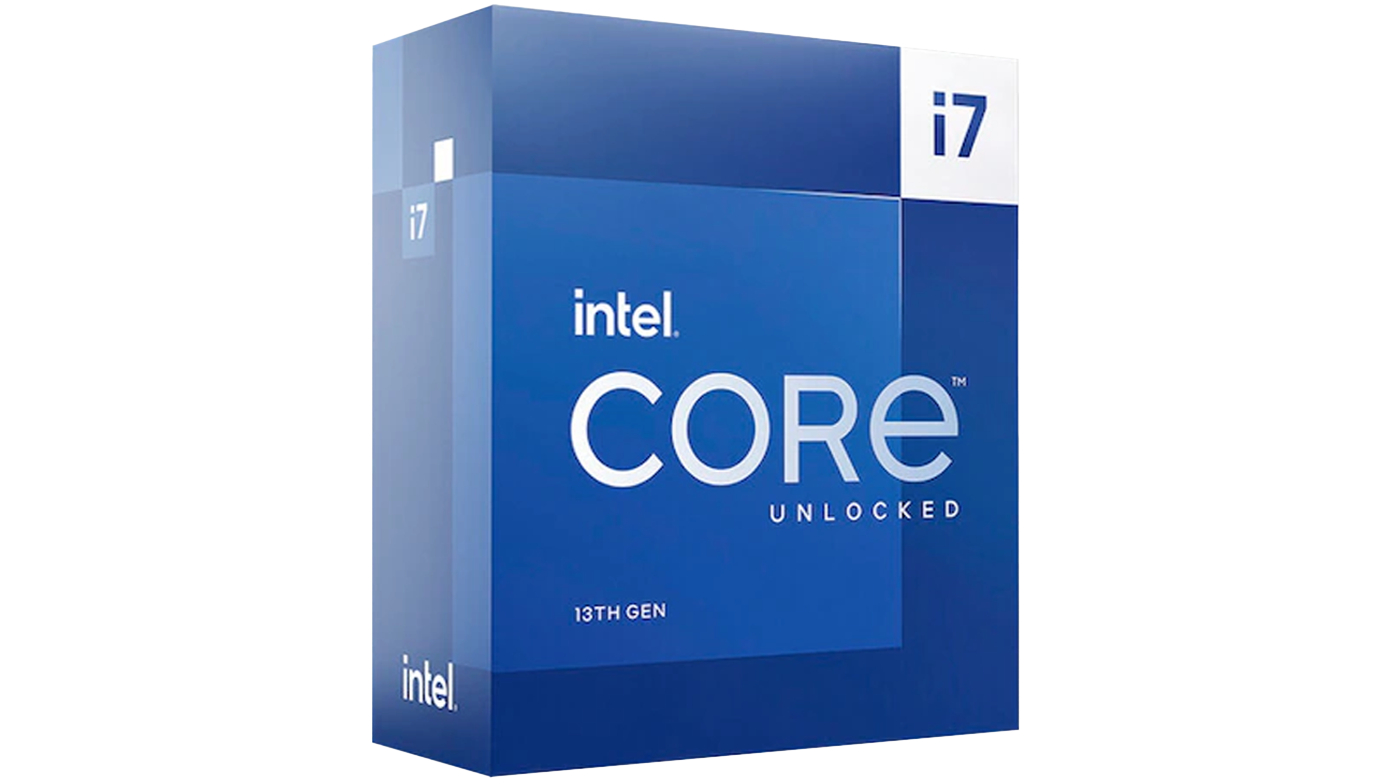
Efficiency Cores: 8
Performance Cores: 8
Threads: 24
Base Clock (E-Cores): 2.5 GHz
Base Clock (P-Cores): 3.4 GHz
Turbo Clock (E-Cores): 4.2 GHz
Turbo Clock (P-Cores): 5.4 GHz
Cache: 78MB Total
TDP: 125W
The Intel Core i7-13700K is an outstanding processor for just about every purpose, making it a great workhorse CPU that can get all manner of work done quickly. Its energy efficiency is laughable, unfortunately, making it a poor choice for any low-profile, low-power PC builds despite it being well-priced.
Pros
- Best-in-class performance
- Excellent price
- DDR4 and DDR5 support
Cons
- Absolutely drunk on (electrical) power
- Runs hot, so get a great cooler
13600K vs 13700K: putting Intel's midrange and mainstream chips to the test
When it comes to desktop processors, the choice between the Intel 13600K vs 13700K is a genuinely tough one, given how both these chips do what they were designed to do very well.
Not only are these two of the best Intel processors on the market, they're two of the best processors ever, full stop.
The Intel Core i5-13600K offers solid performance when it comes to productivity and everyday tasks like video streaming, web browsing, and even some pretty intense gaming—all for a very accessible price for such an advanced piece of technology.
The Intel Core i7-13700K, meanwhile, is the workhorse of the Intel Raptor Lake lineup, putting its head down and getting to work by providing absolutely fantastic performance across every major workload you can throw at it without breaking much of a sweat.
Both these chips have their benefits and disadvantages, though, so finding the best computer processor for your needs and budget is a task you shouldn't take lightly. Fortunately, I've put both of these chips through extensive testing recently using the most up to date PC firmware and benchmarking tools and I'm here to lay out the raw numbers for you so you can make the most well-informed purchase possible.
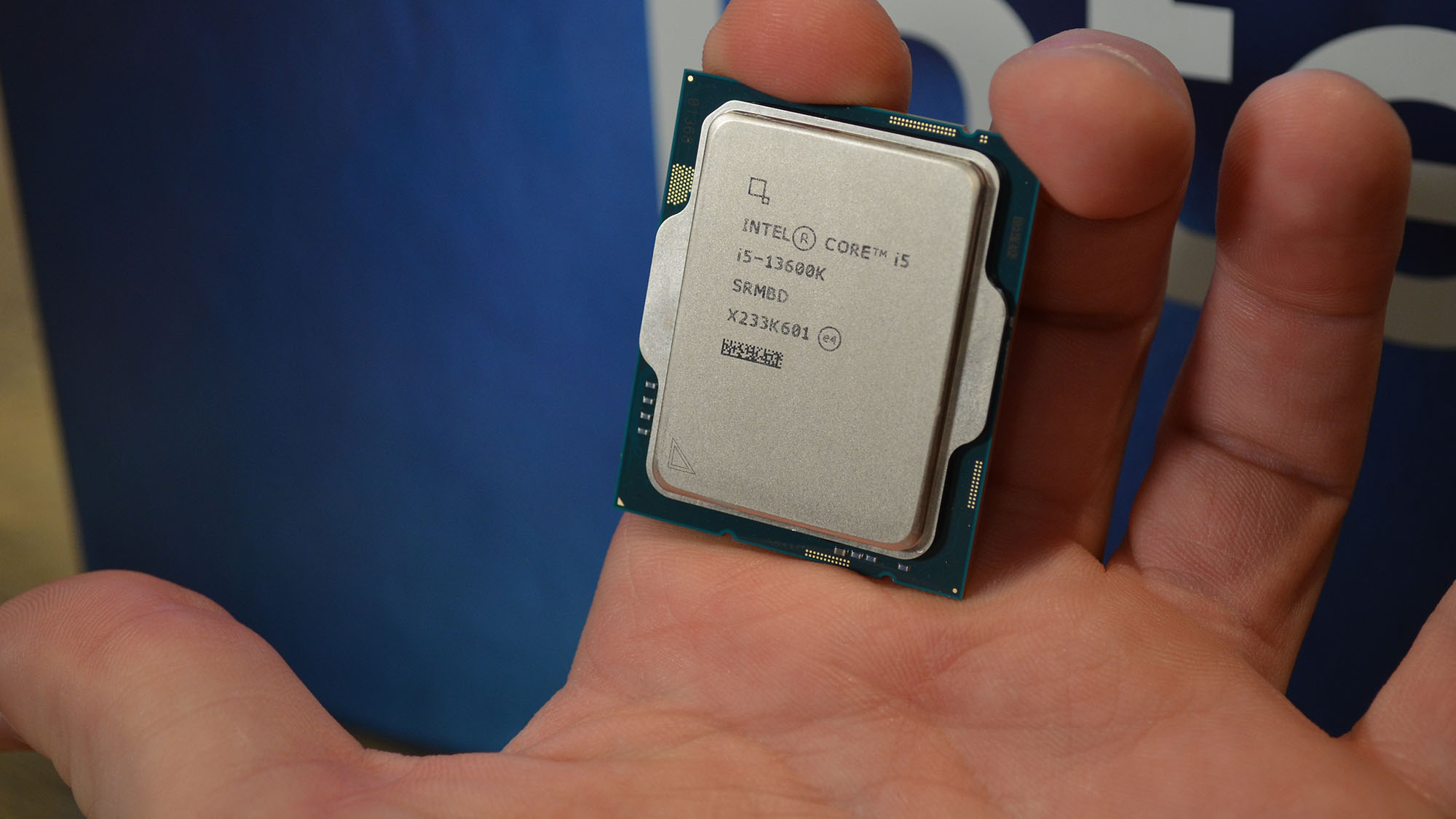
13600K vs 13700K: Price
In terms of price, the 13600K vs 13700K are slightly unmatched given that these are two different classes of computer processor. The Core i5-13600K has an MSRP of $319 / £299.99 / AU$499, which is about 10% more expensive than its predecessor, the Intel Core i5-12600K.
The Intel Core i7-13700K, meanwhile, has an MSRP of $419 / £399 / AU$669, which makes it slightly (about 2.5%) more expensive than its predecessor, the Intel Core i7-12700K, and about 30% more expensive than the 13600K.
Sign up for breaking news, reviews, opinion, top tech deals, and more.
As for which chip offers the better value, I'll go into more detail in the performance section to come, but I can tell you now that the 13600K's best selling point is that it offers the best performance for the price of any of Intel's 13th-generation mainstream processors, so by any measure, the Core i5-13600K wins this round.
- Winner: Intel Core i5-13600K
13600K vs 13700K: Specs
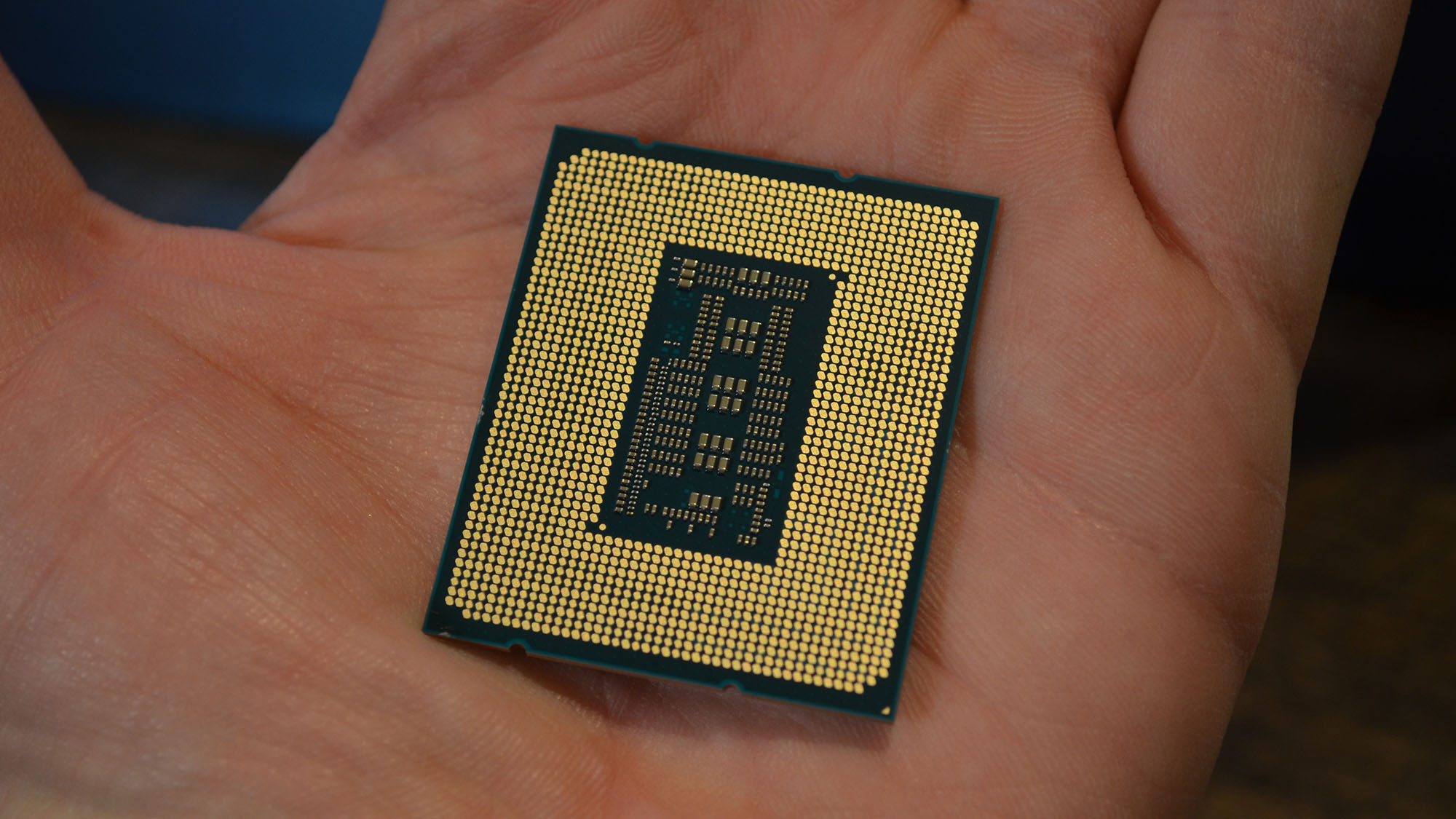
As for the differences in specs between the 13600K vs 13700K, the difference between the two chips isn't as wide as it is between the 13900K vs 13700K, but it's still enough to make it a real choice between whether you want better performance or a cheaper price.
| Specs | Intel Core i5-13600K | Intel Core i7-13700K |
|---|---|---|
| Price | $319 / £299.99 / AU$499 | $419 / £399 / AU$669 |
| Performance Cores | 6 | 8 |
| Efficiency Cores | 8 | 8 |
| Threads | 20 | 24 |
| Integrated Graphics | Yes | Yes |
| P-Core Base Clock | 3.5 GHz | 3.4 GHz |
| P-Core Boost Clock | 5.1 GHz | 5.4 GHz |
| E-Core Base Clock | 2.6 GHz | 2.5 GHz |
| E-Core Boost Clock | 3.9 GHz | 4.2 GHz |
| L3 Cache | 24MB | 30MB |
| TDP | 125W | 125W |
| Socket | LGA 1700 | LGA 1700 |
| Max Temp | 100 | 100 |
- Winner: Intel Core i7-13700K
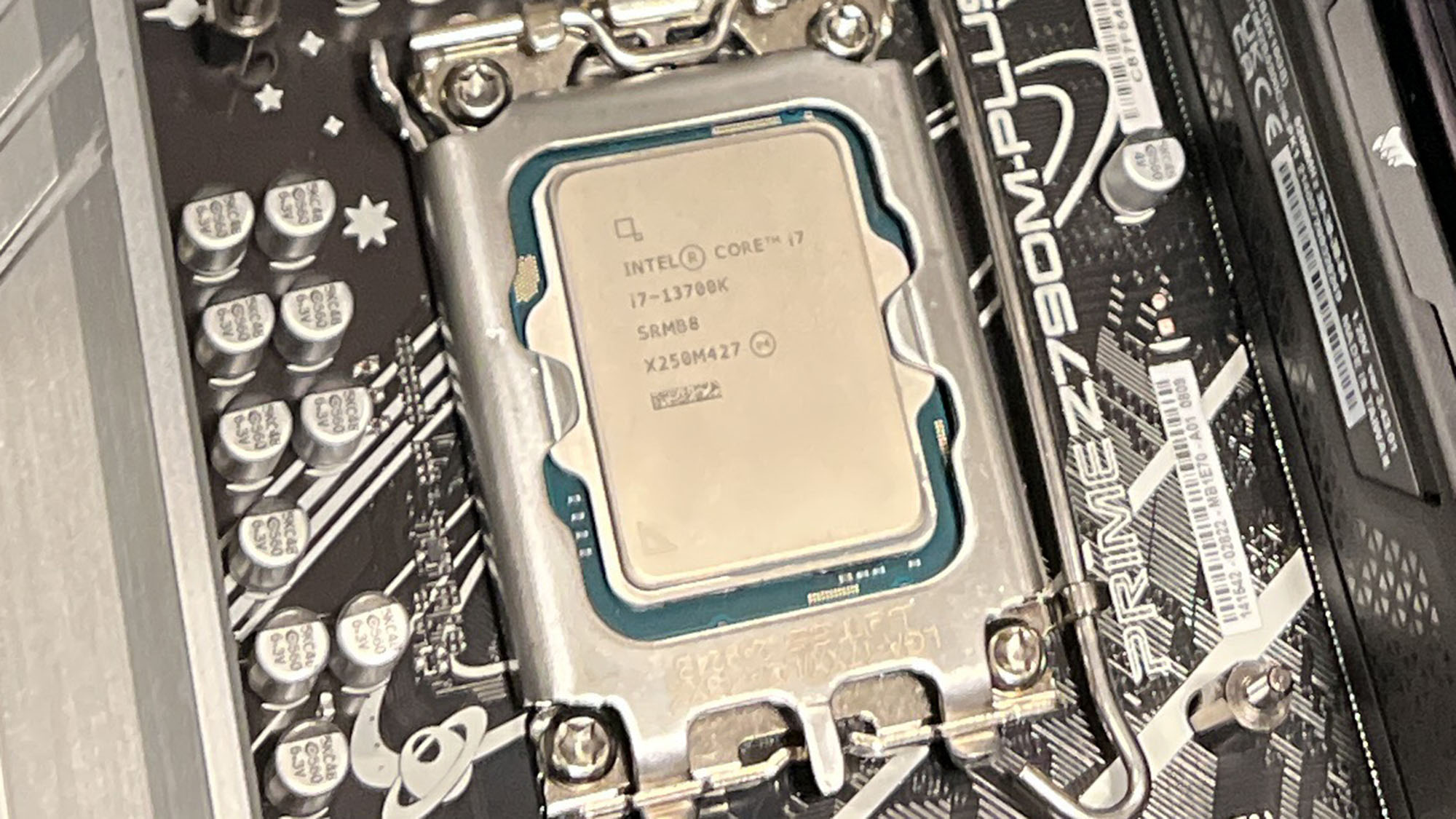
13600K vs 13700K: Performance
When it comes to performance, the i7-13700K is an absolute workhorse of a CPU, and the i5-13600K does an admirable job, but ultimately can't keep up with the higher-tier processor, as one would expect.
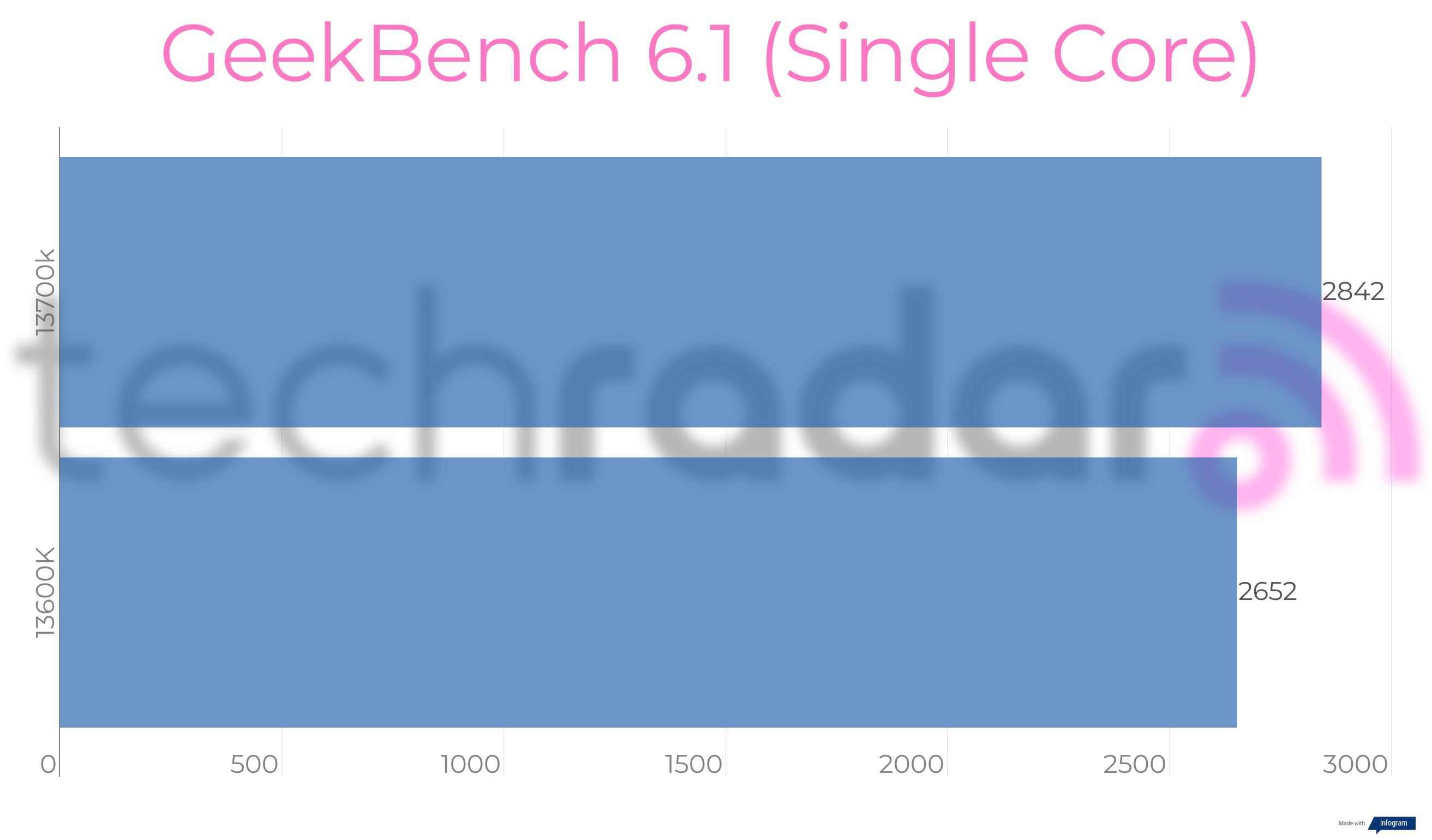
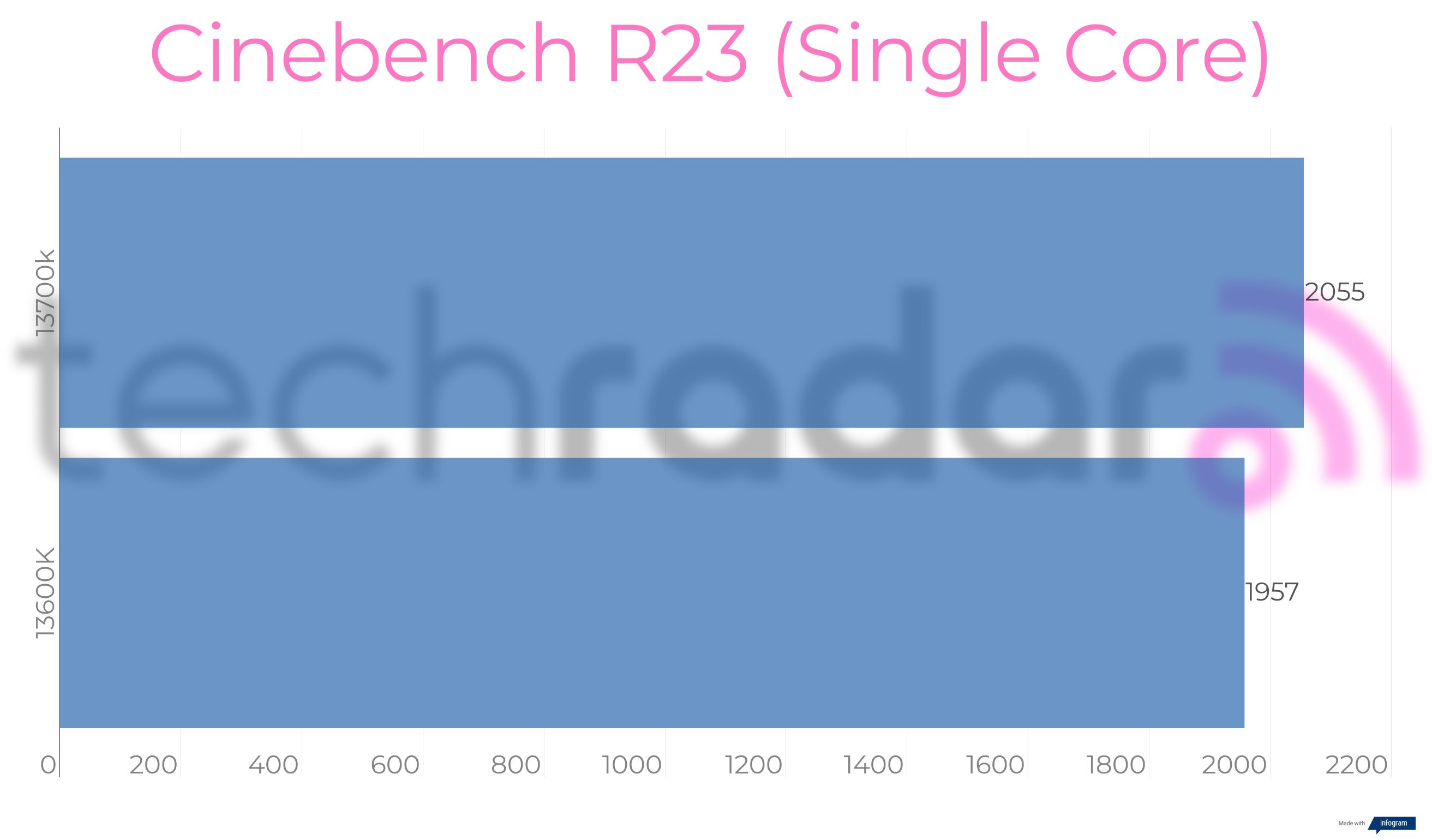
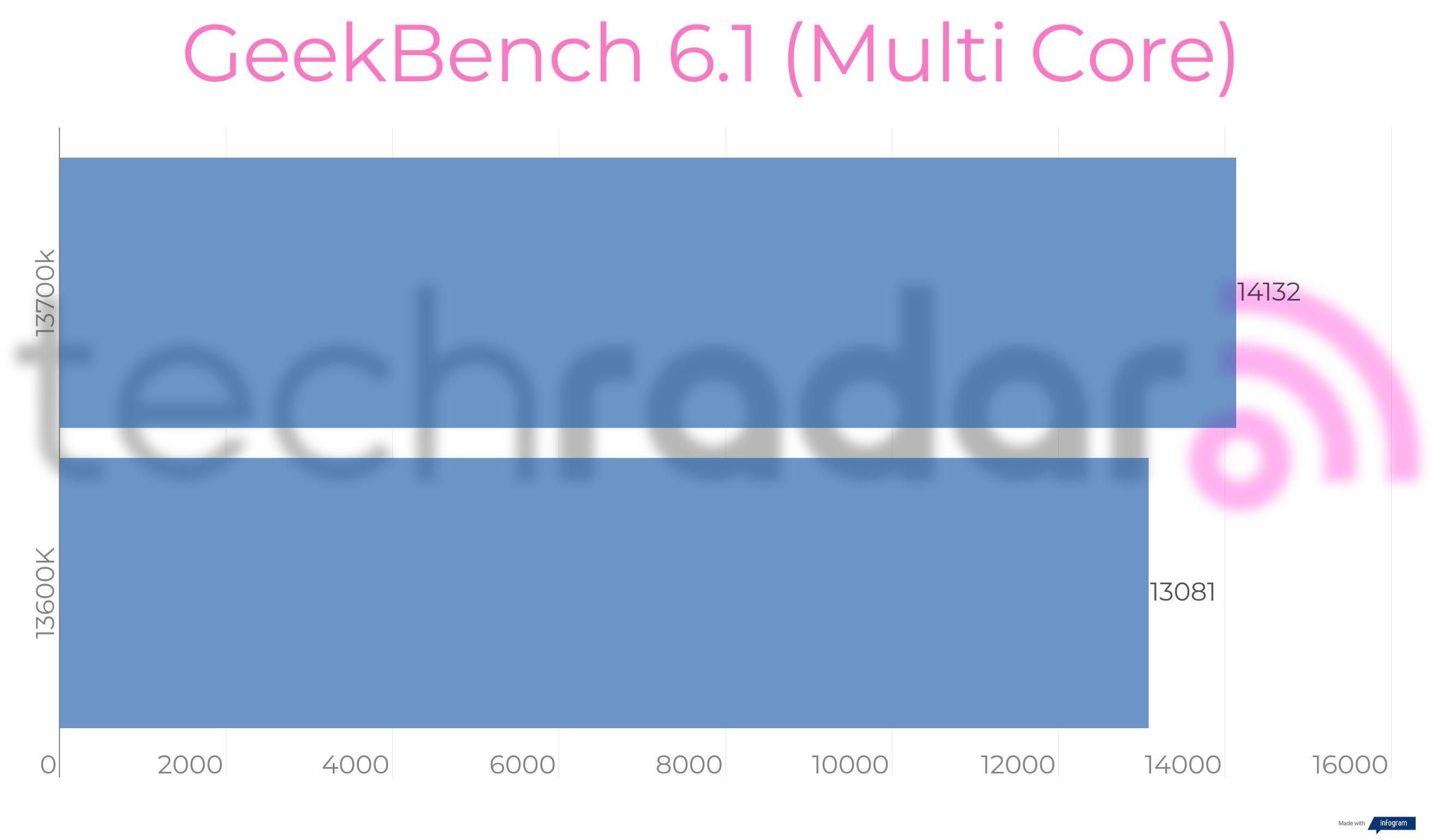
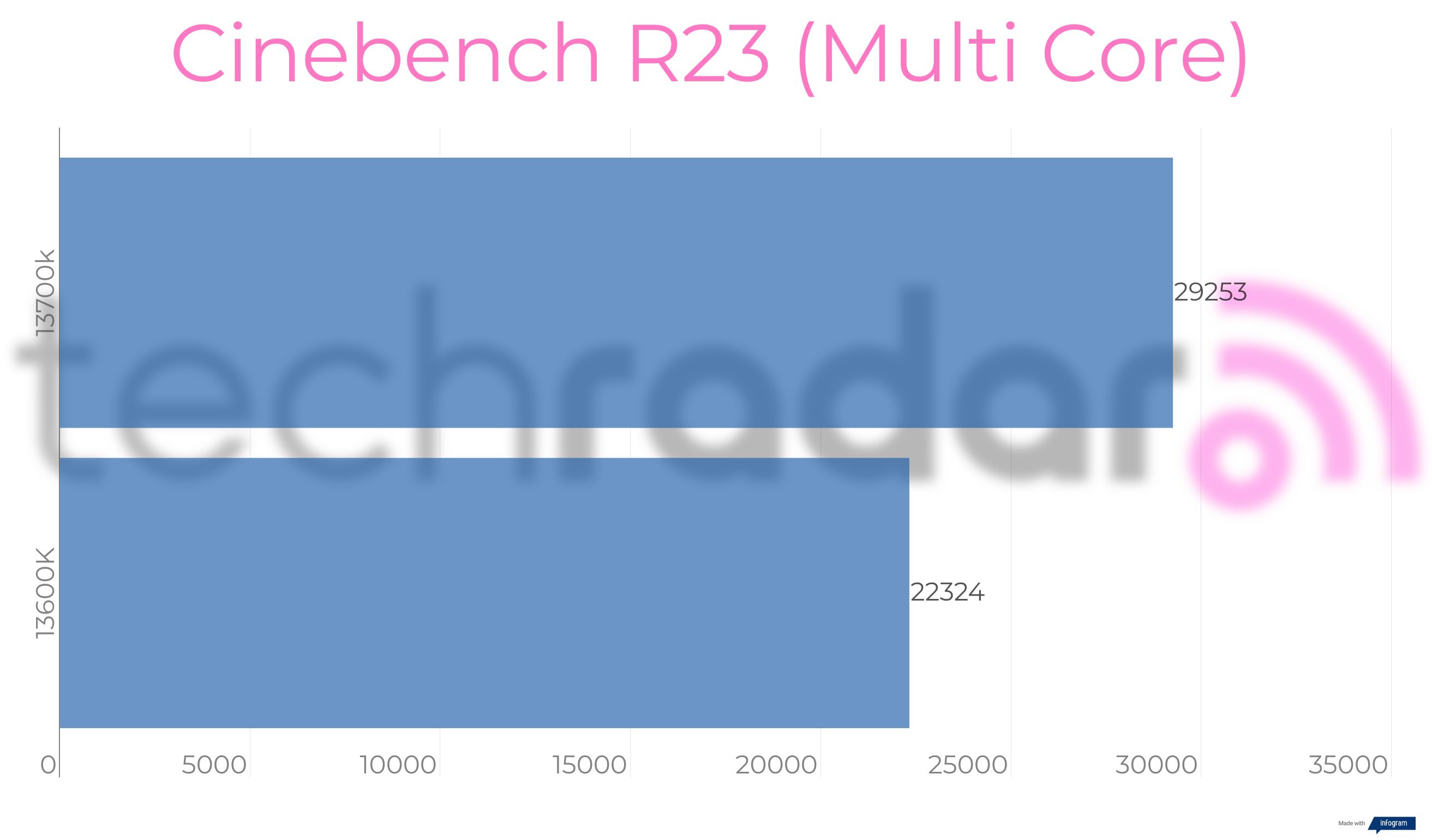
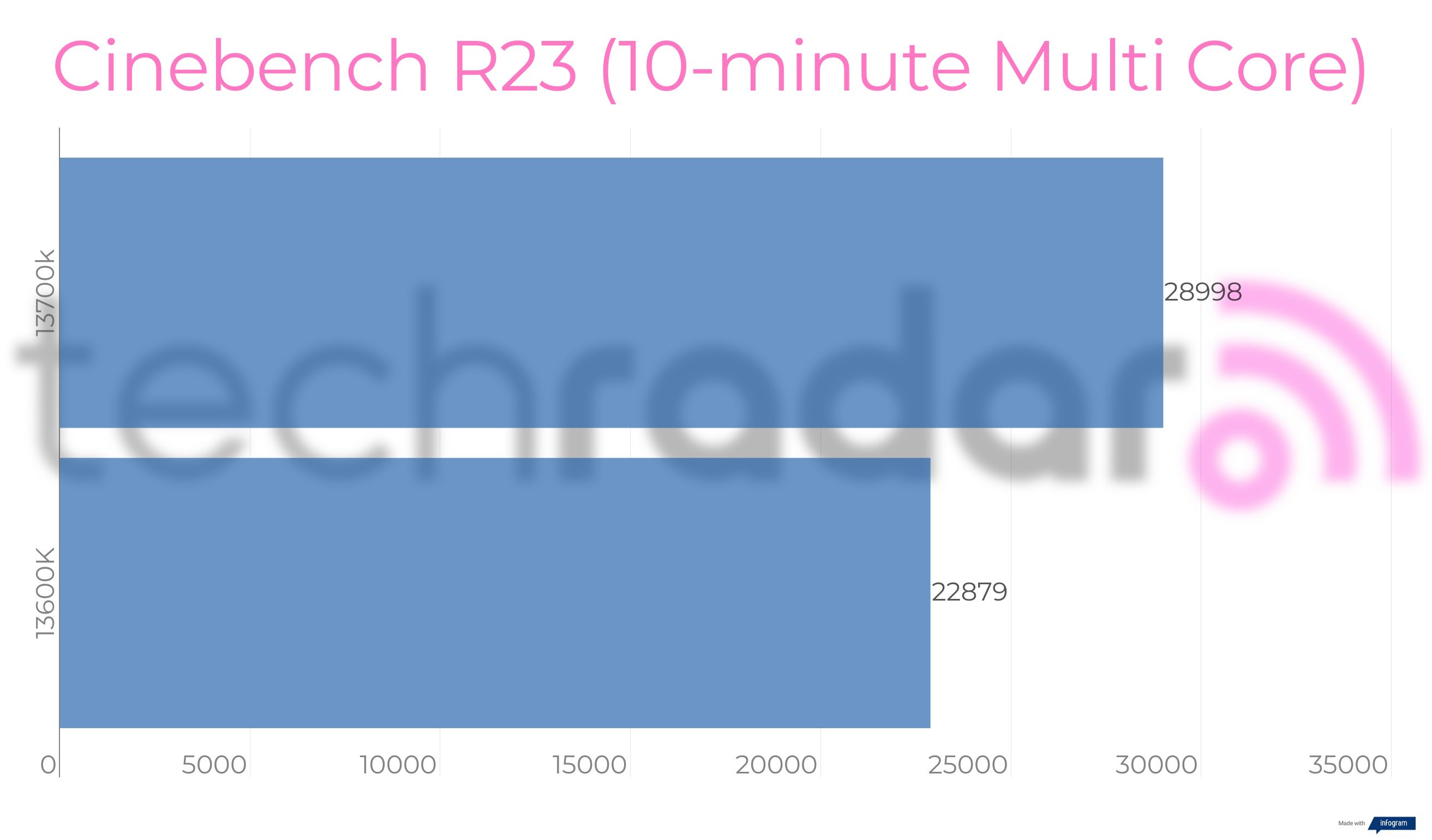
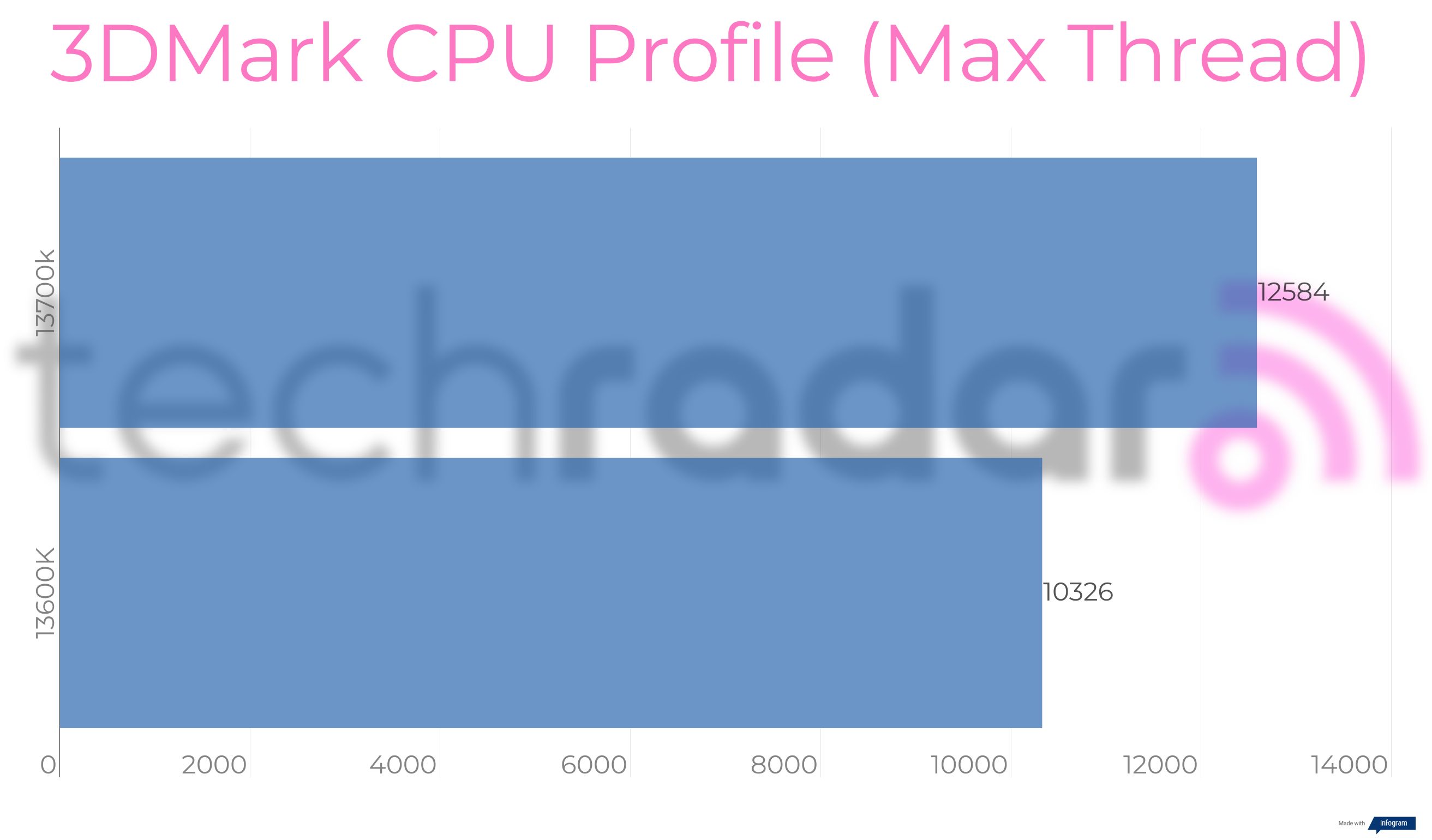
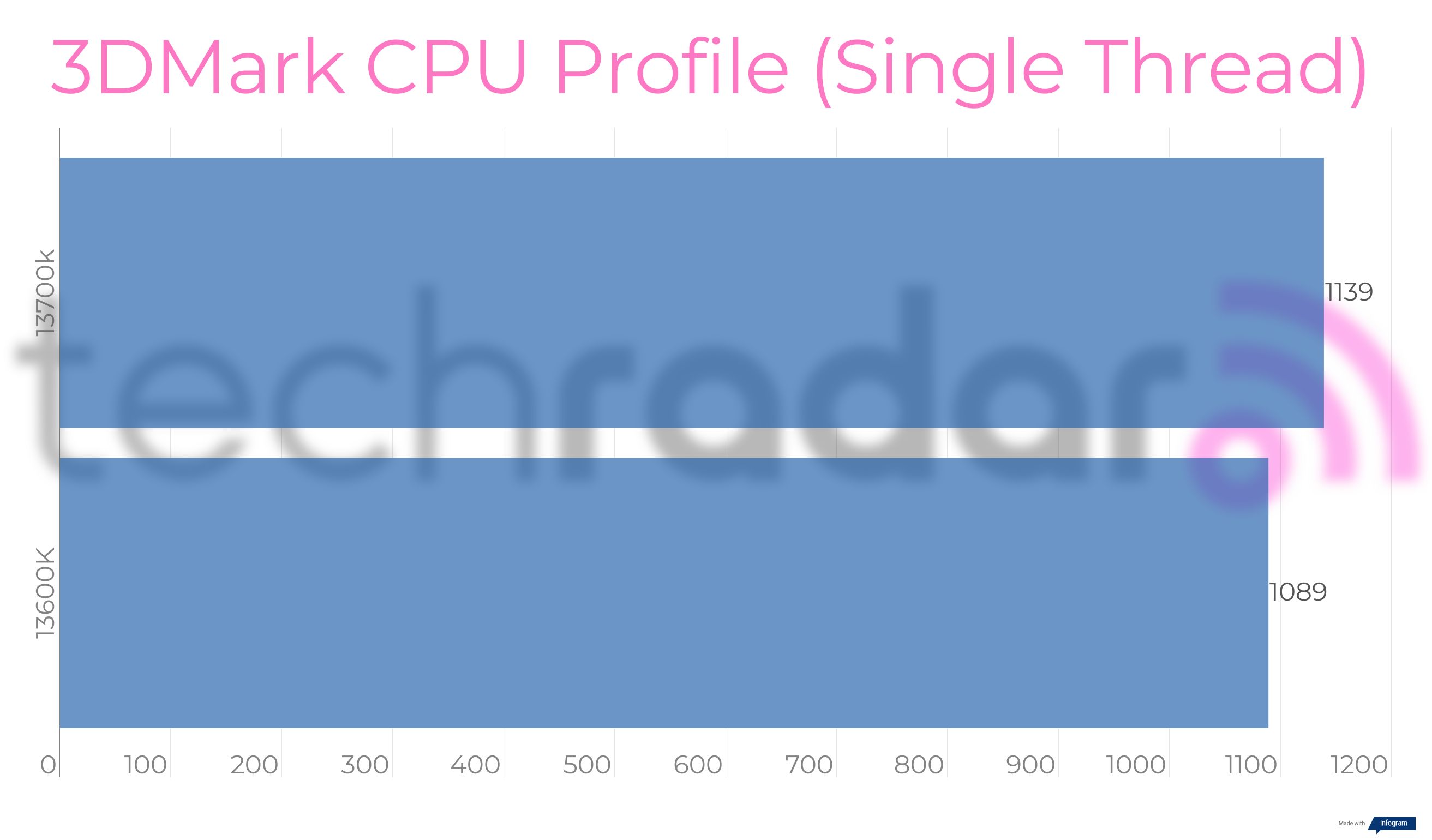
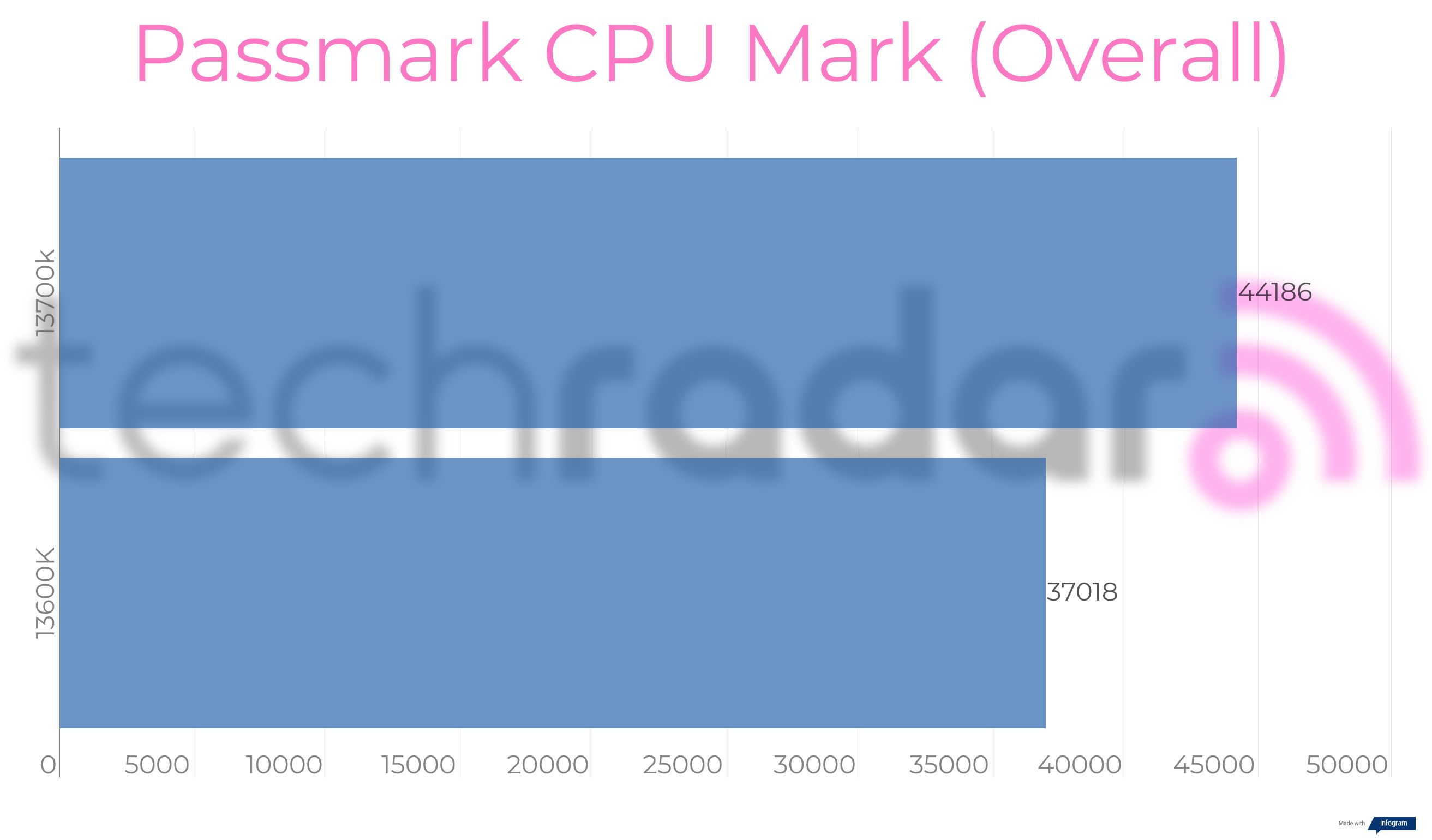
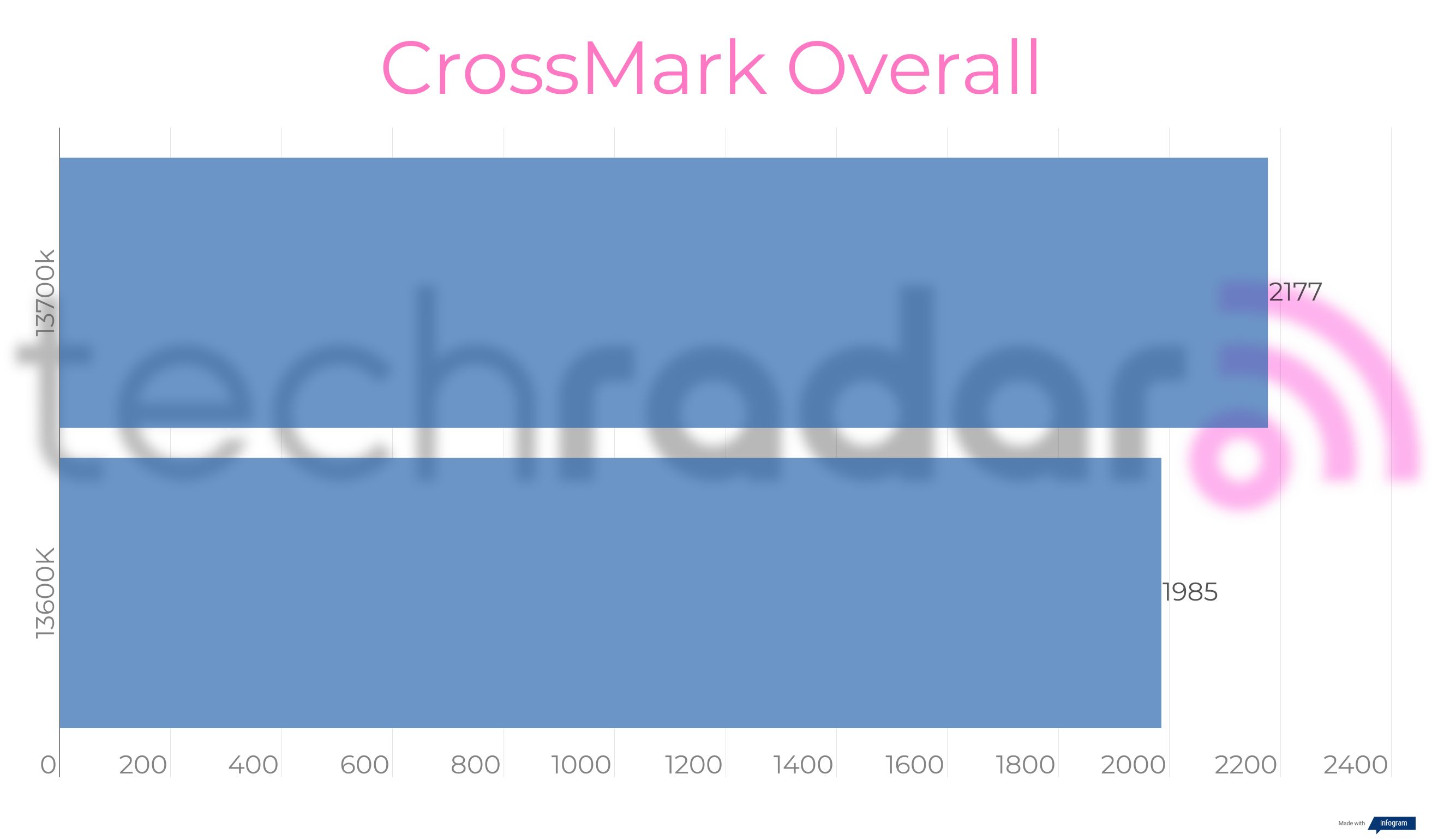
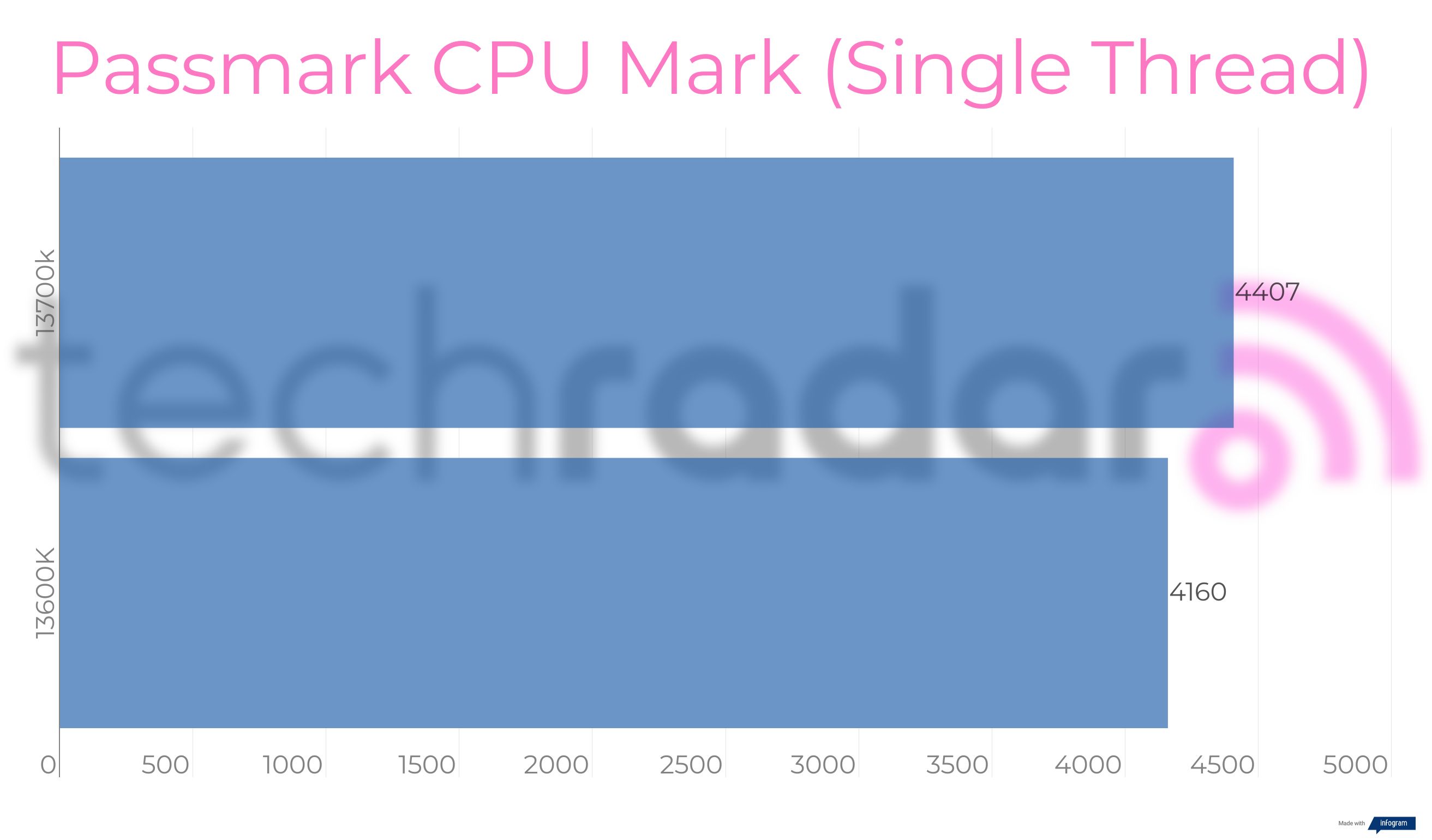
In our synthetic benchmarks test, the 13700K outperforms the 13600K by about 6% in single-core performance, which admittedly isn't all that much.
When it comes to multi core performance though, the 13700K pulls about 22% better performance on average, thanks in no small part to the two additional performance cores and faster overall clock speeds.
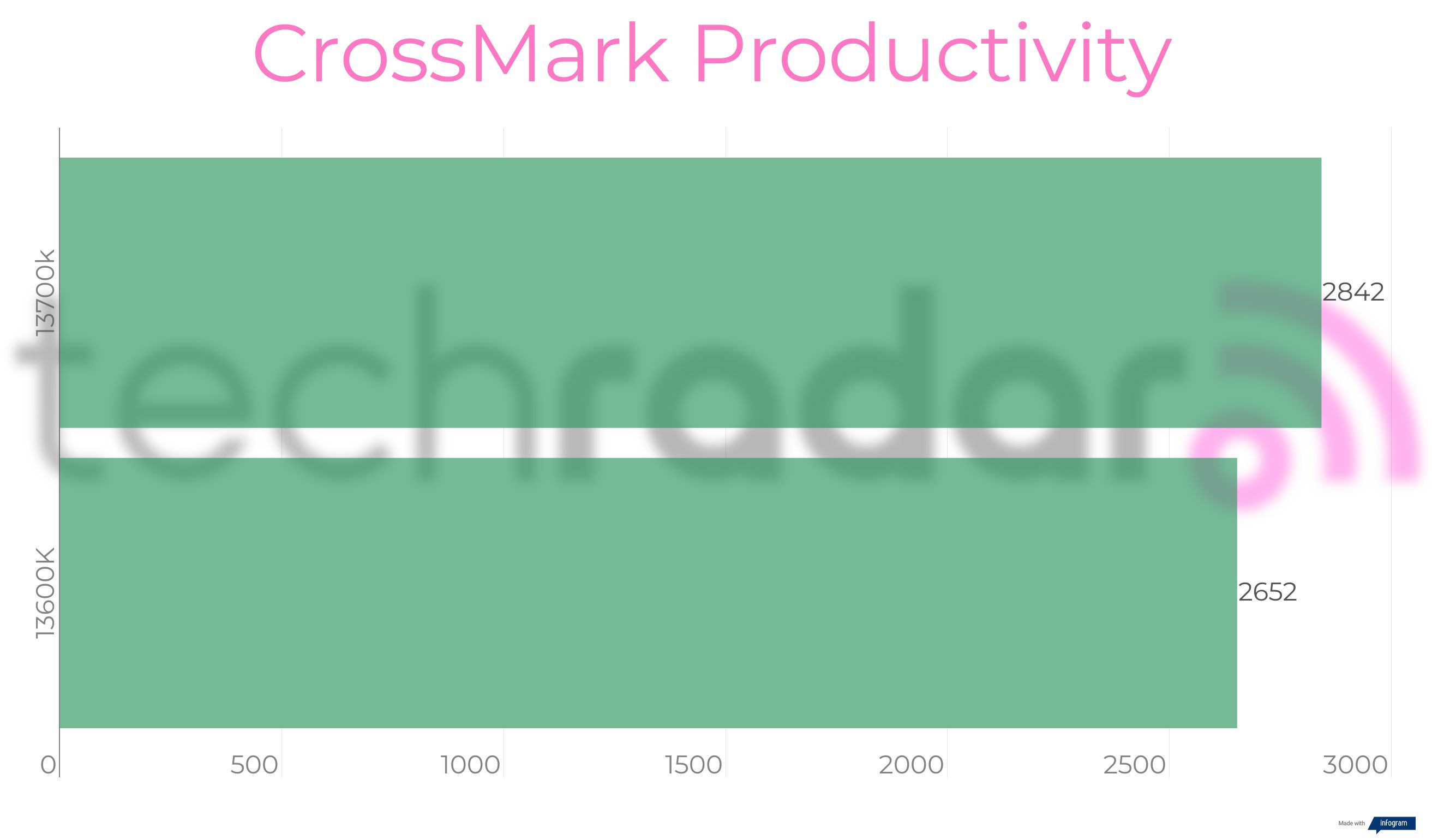
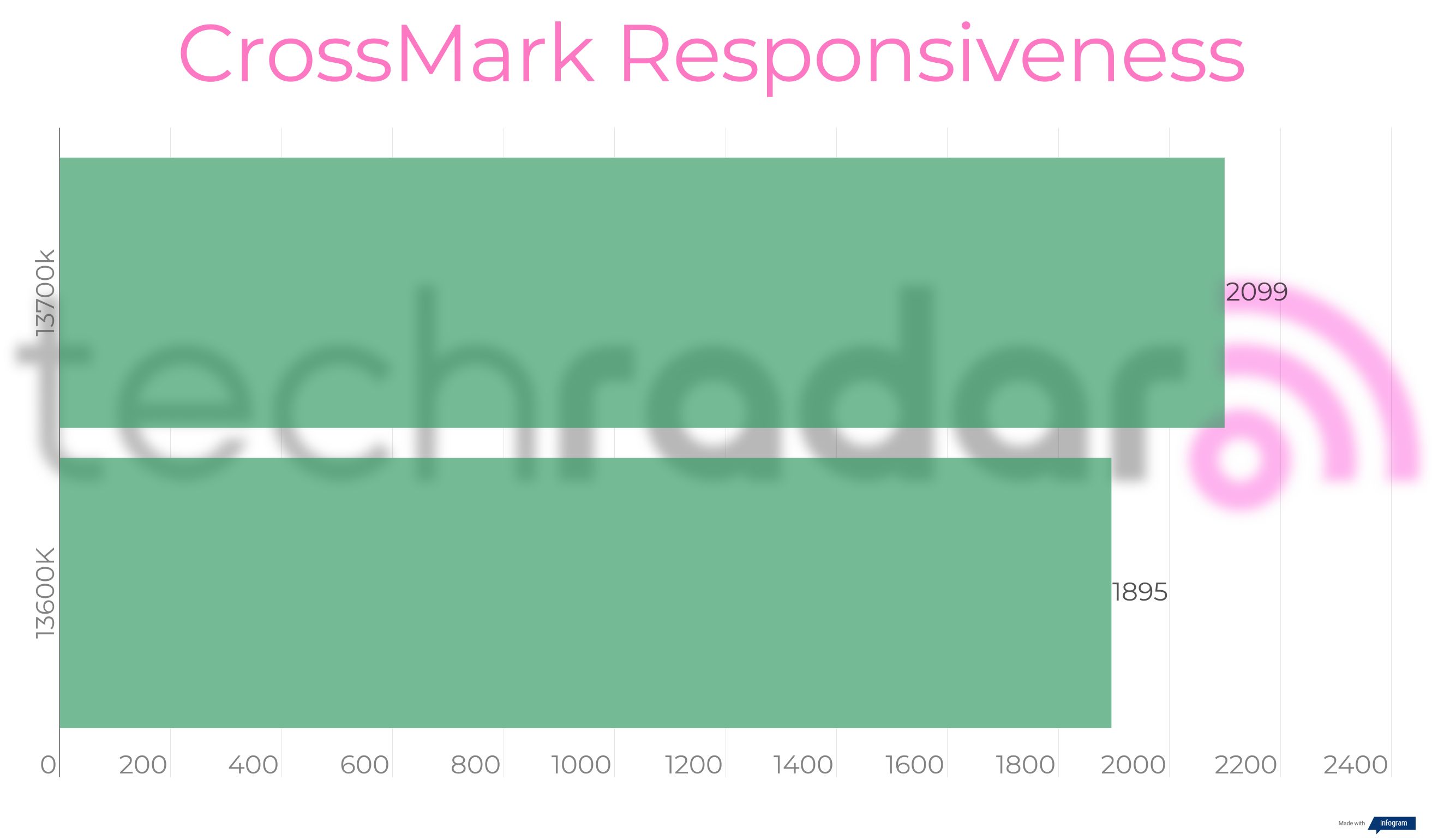
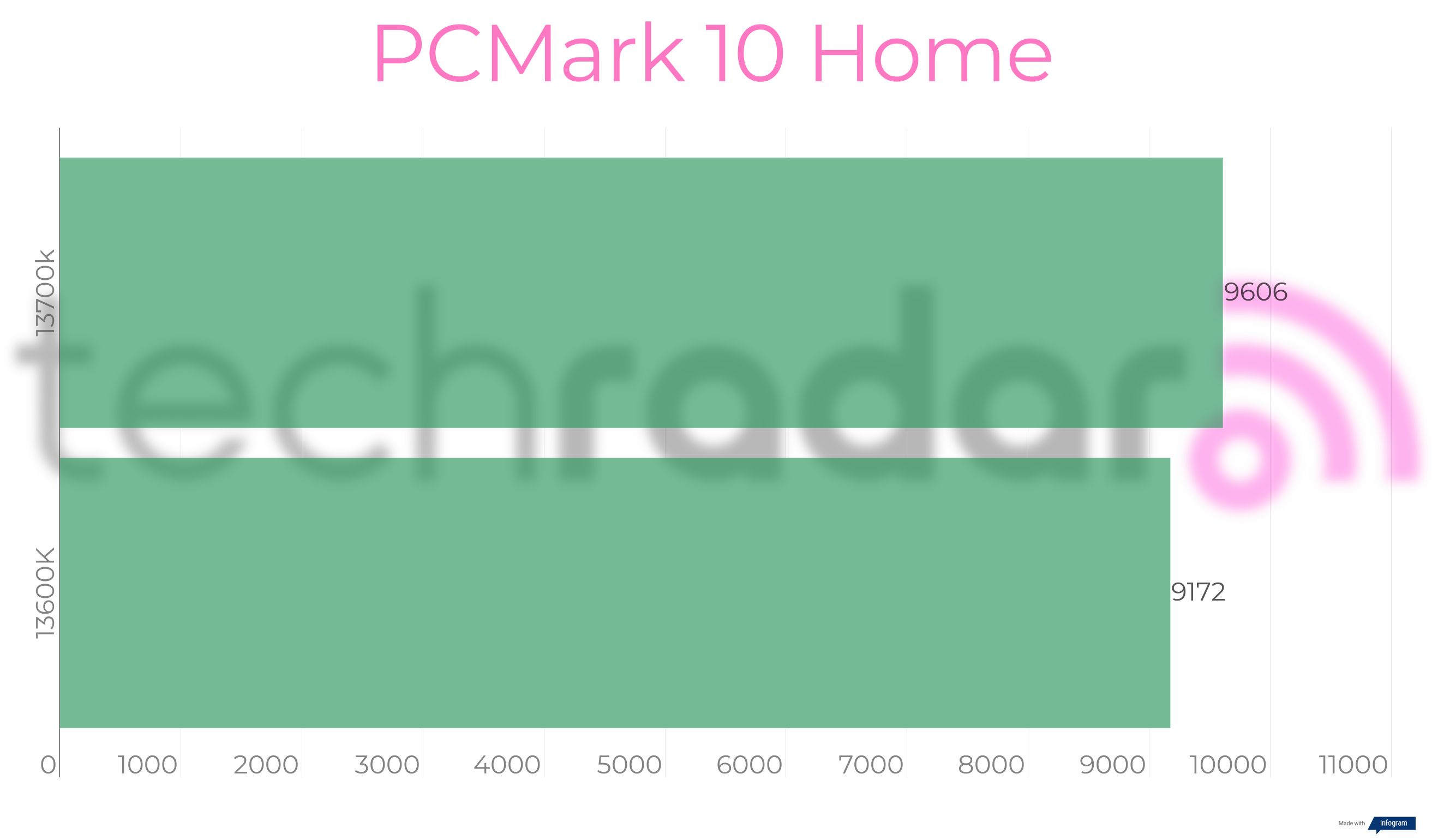
For productivity tasks, the i7-13700K is again the winner, but not by a whole lot. It outperformed the 13600K by about 7% overall, which makes sense since most productivity apps are single-core-dependent, so you won't see that much of a gain in any one app, though multitasking between several apps will obviously be much easier with the 13700K.
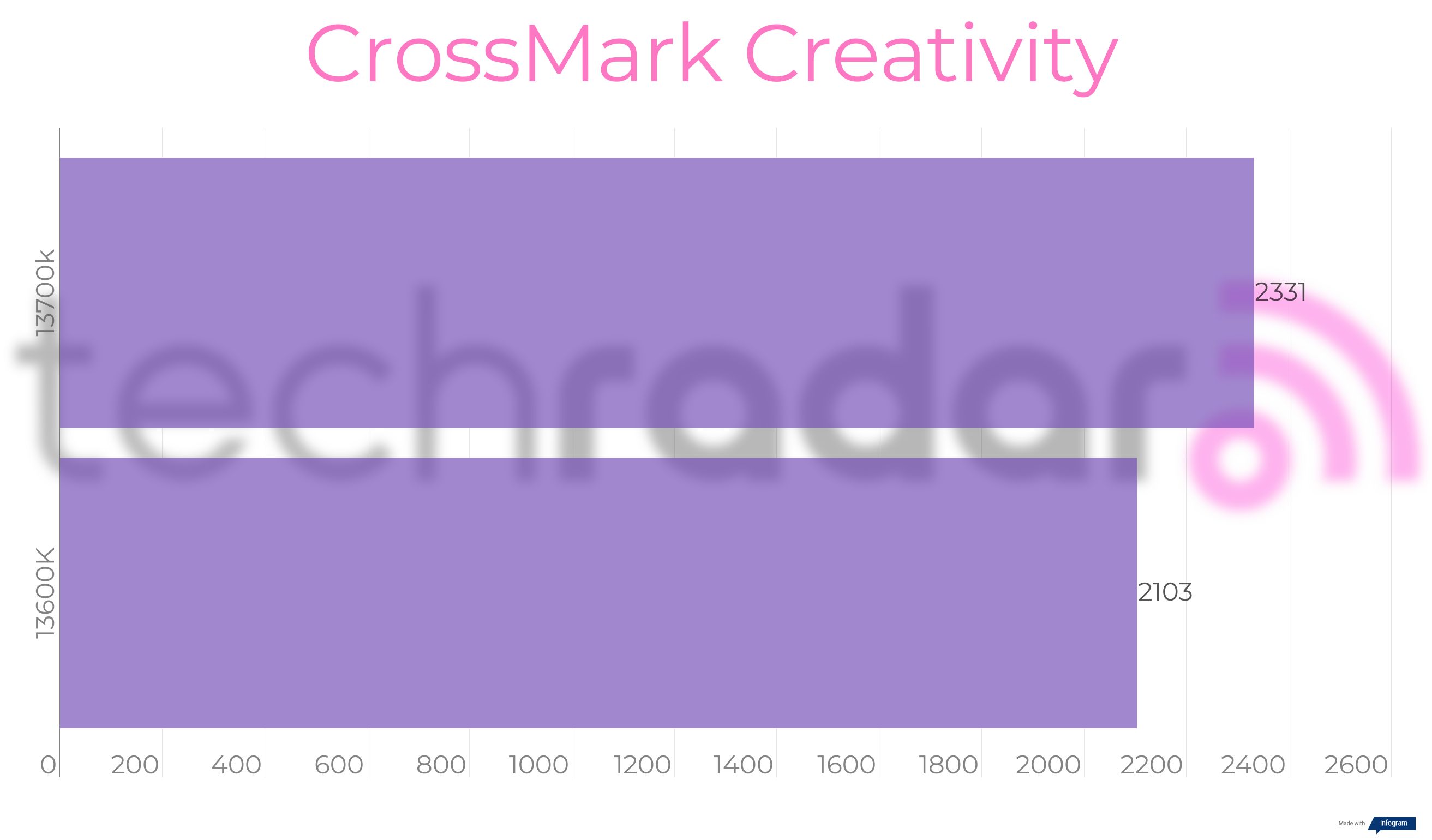
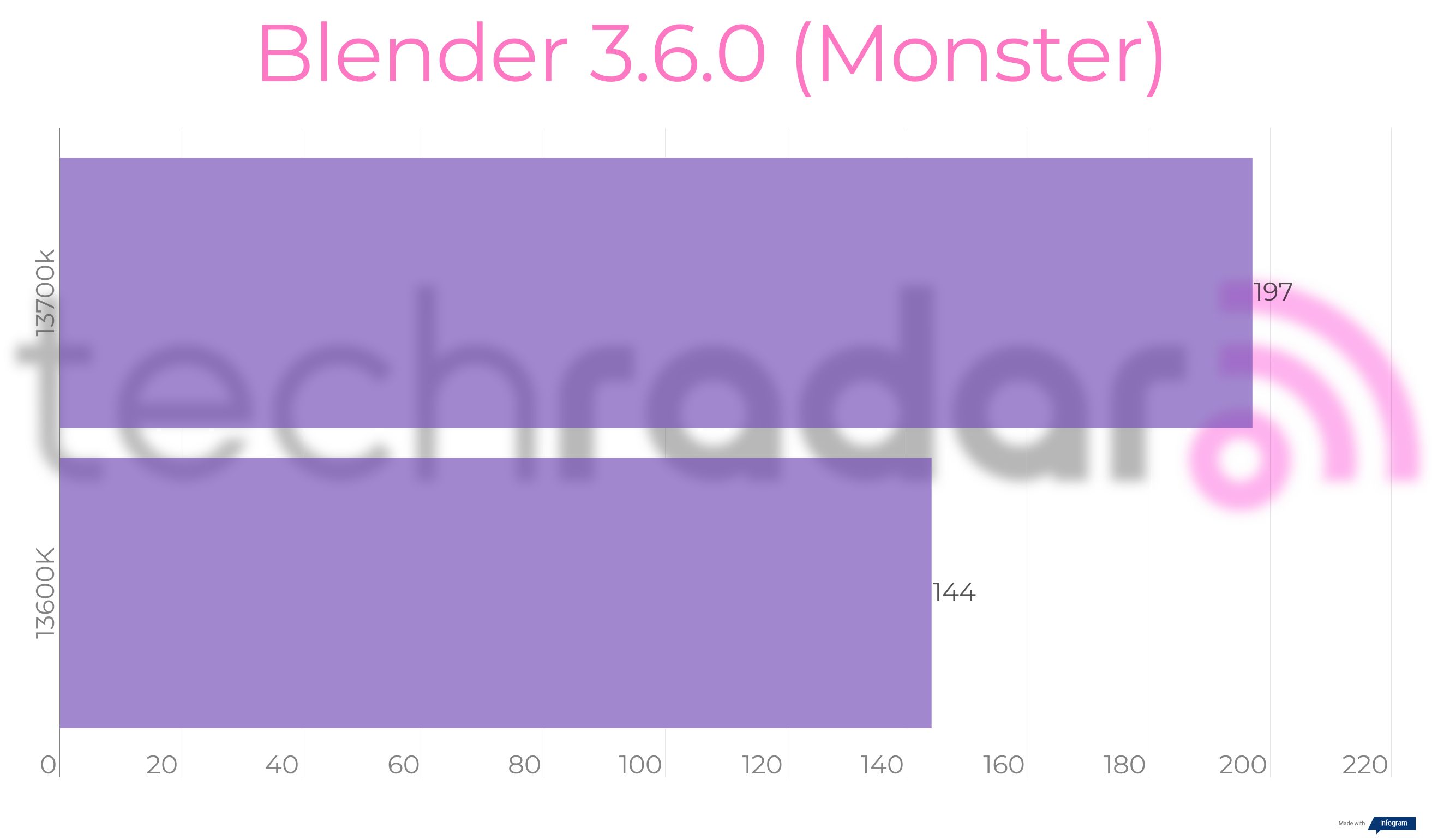
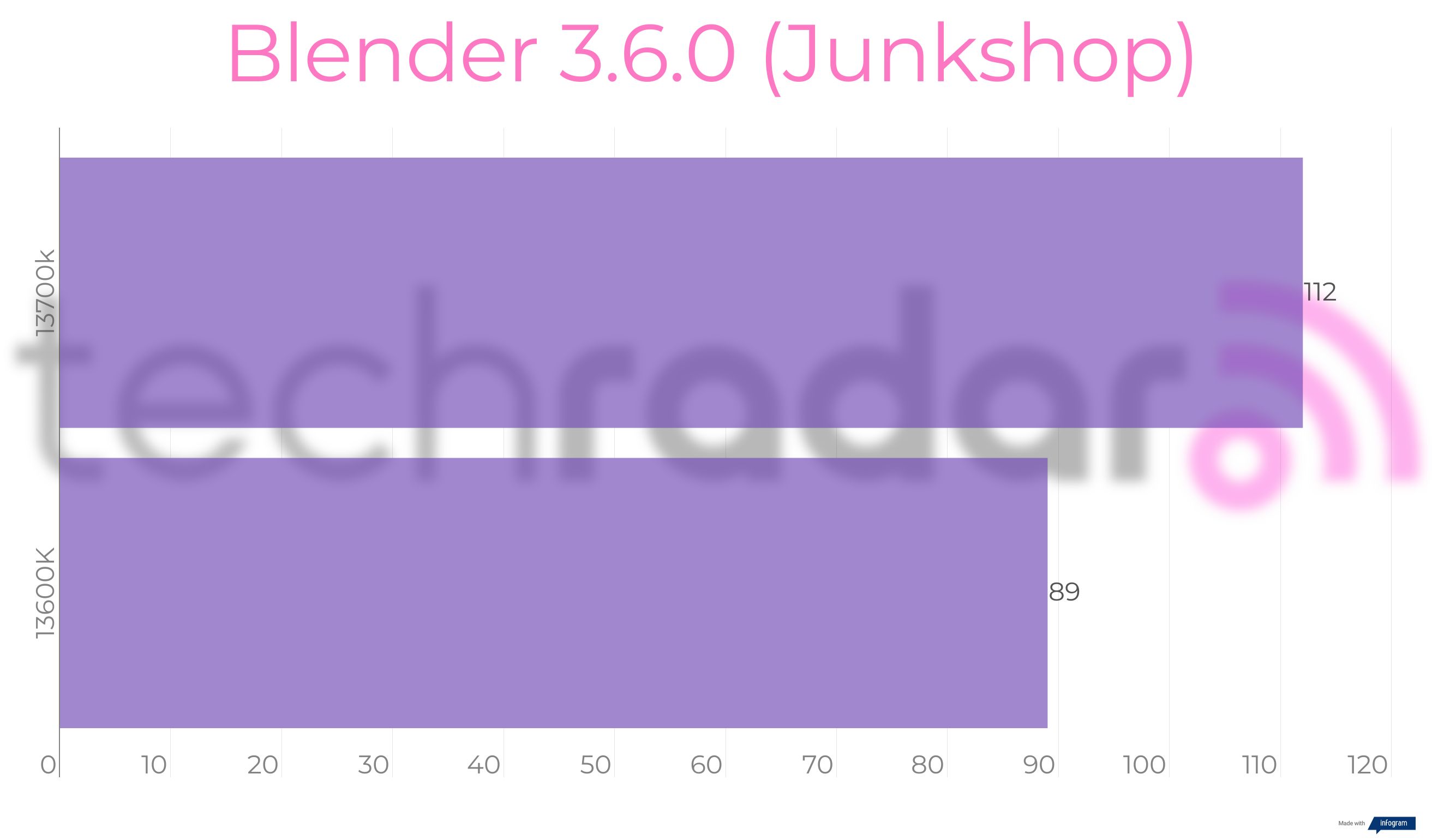
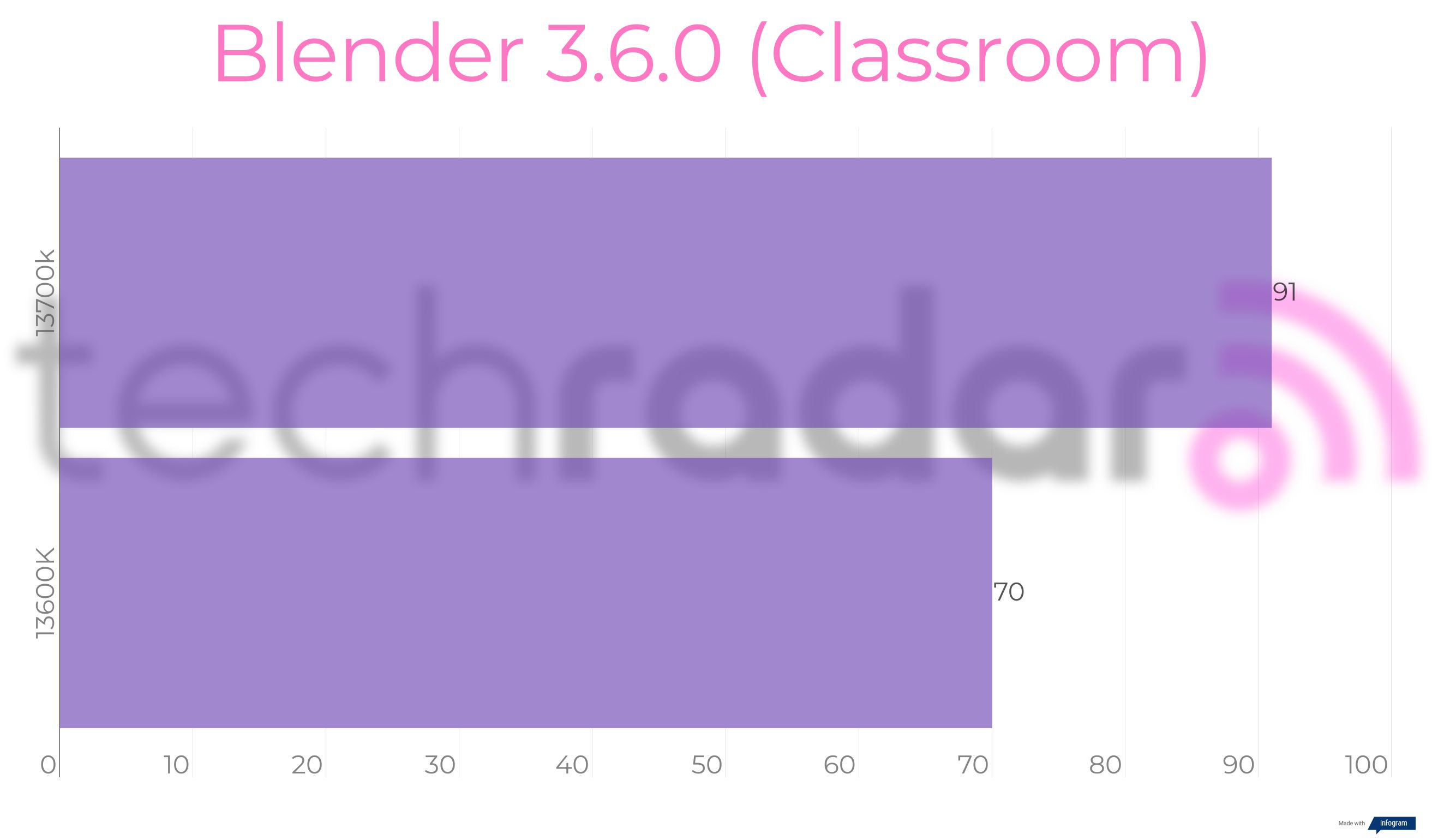
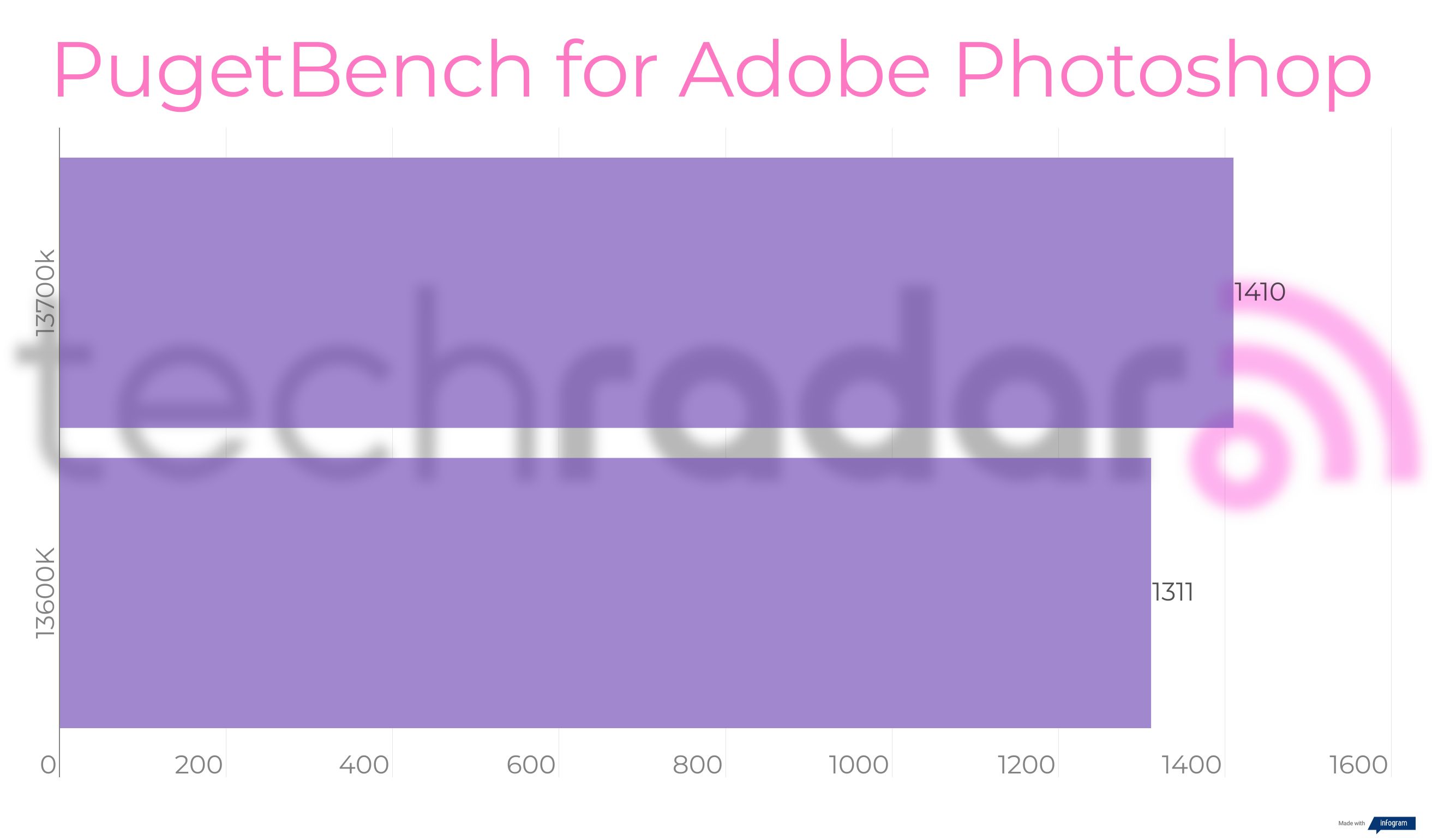
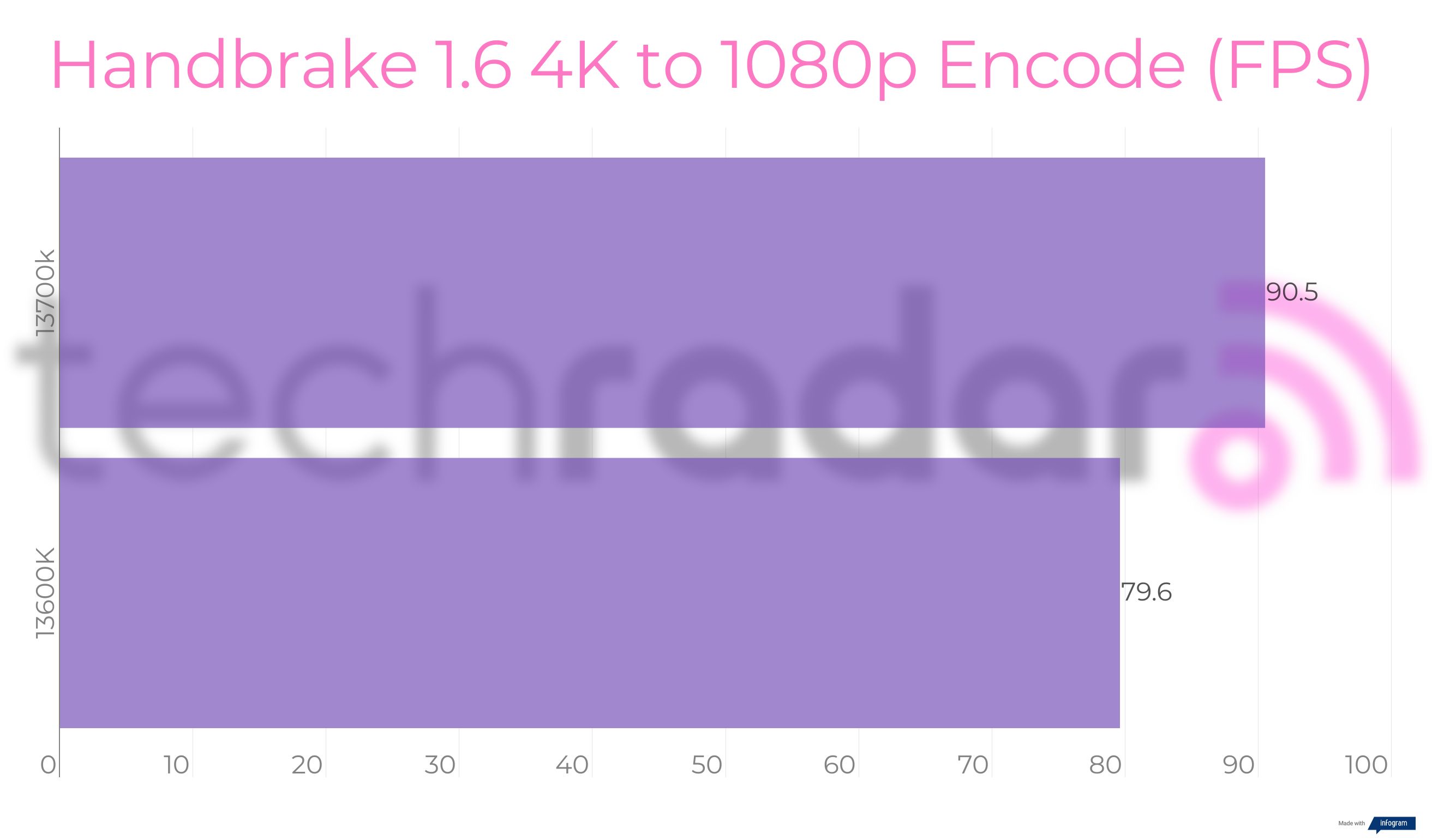
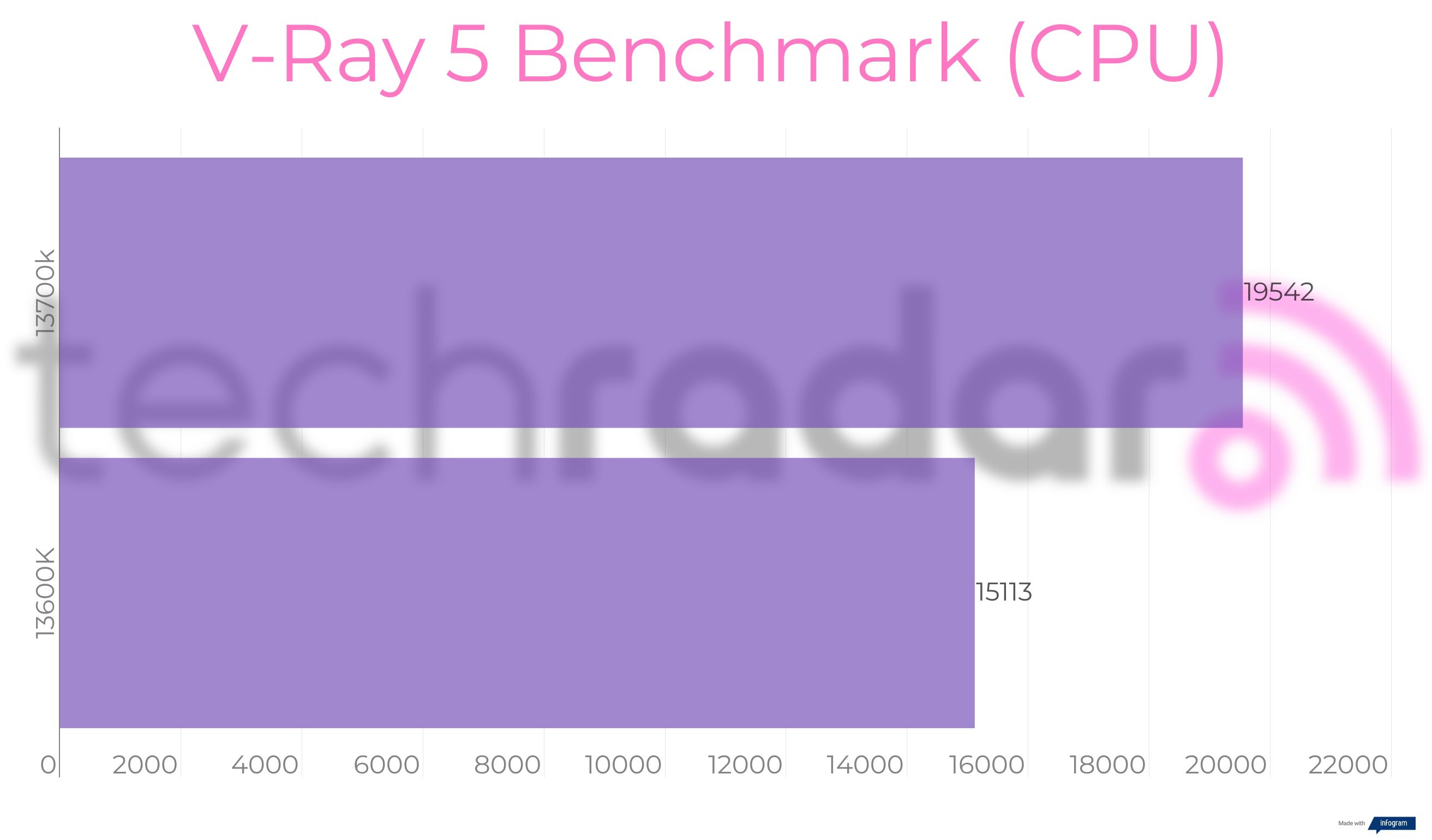
For creative performance, the 13700K outperforms the 13600K by about 22% overall, which isn't surprising, since the 13600K's lower performance core count and lower turbo clock speeds means less horsepower to bring to bear chomping through creative workloads like complex video editing with layered effects and filters.
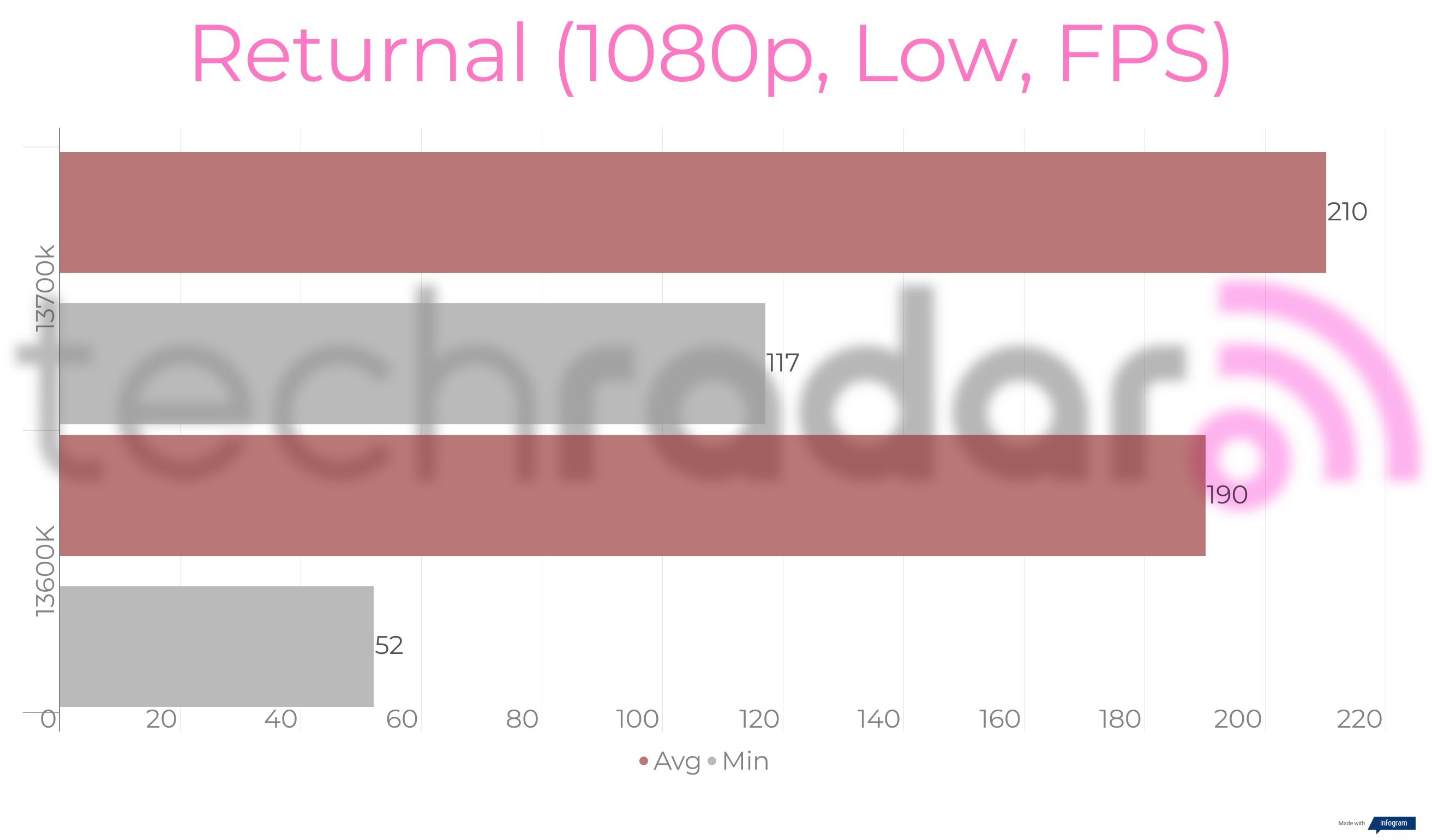
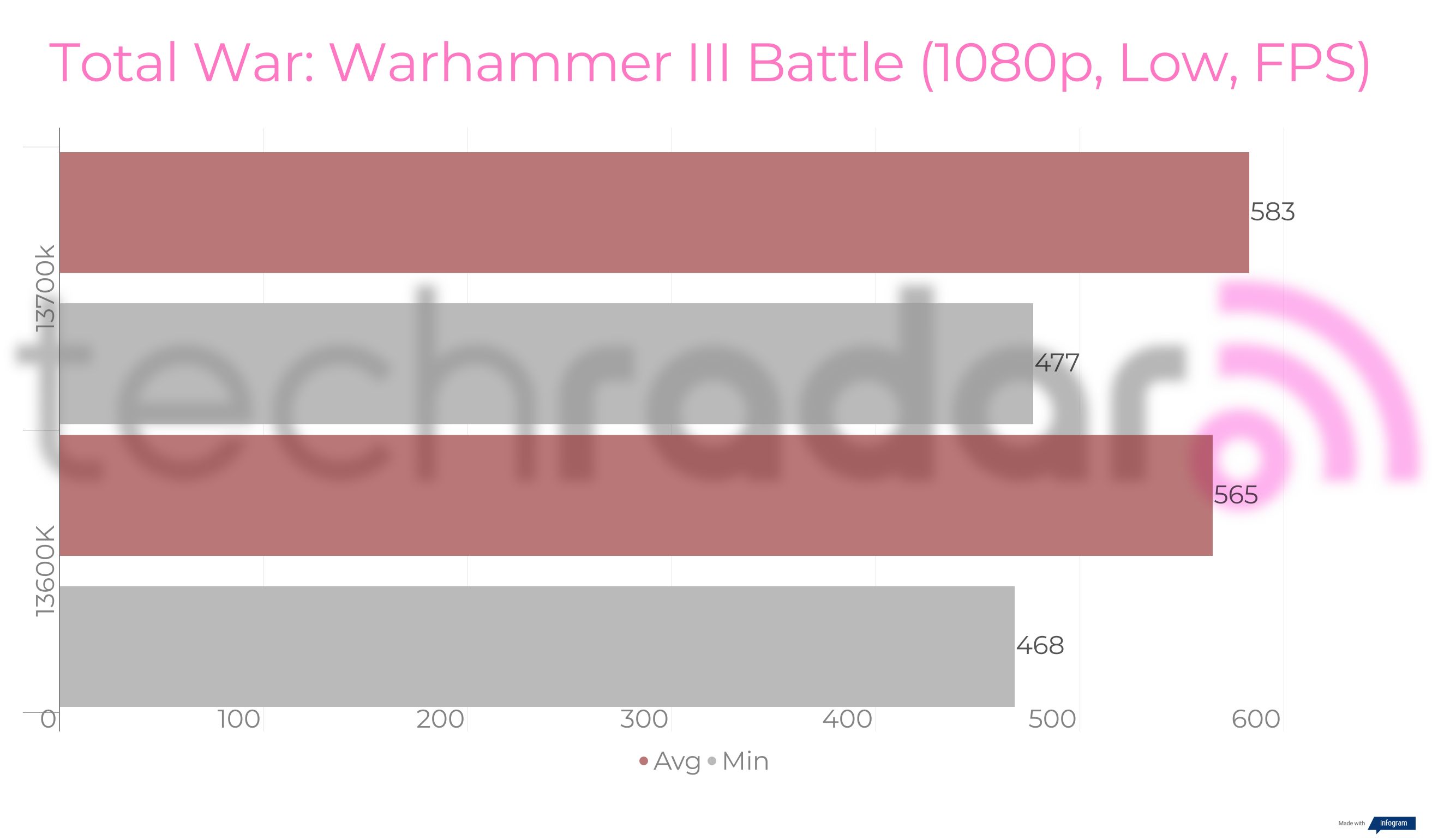
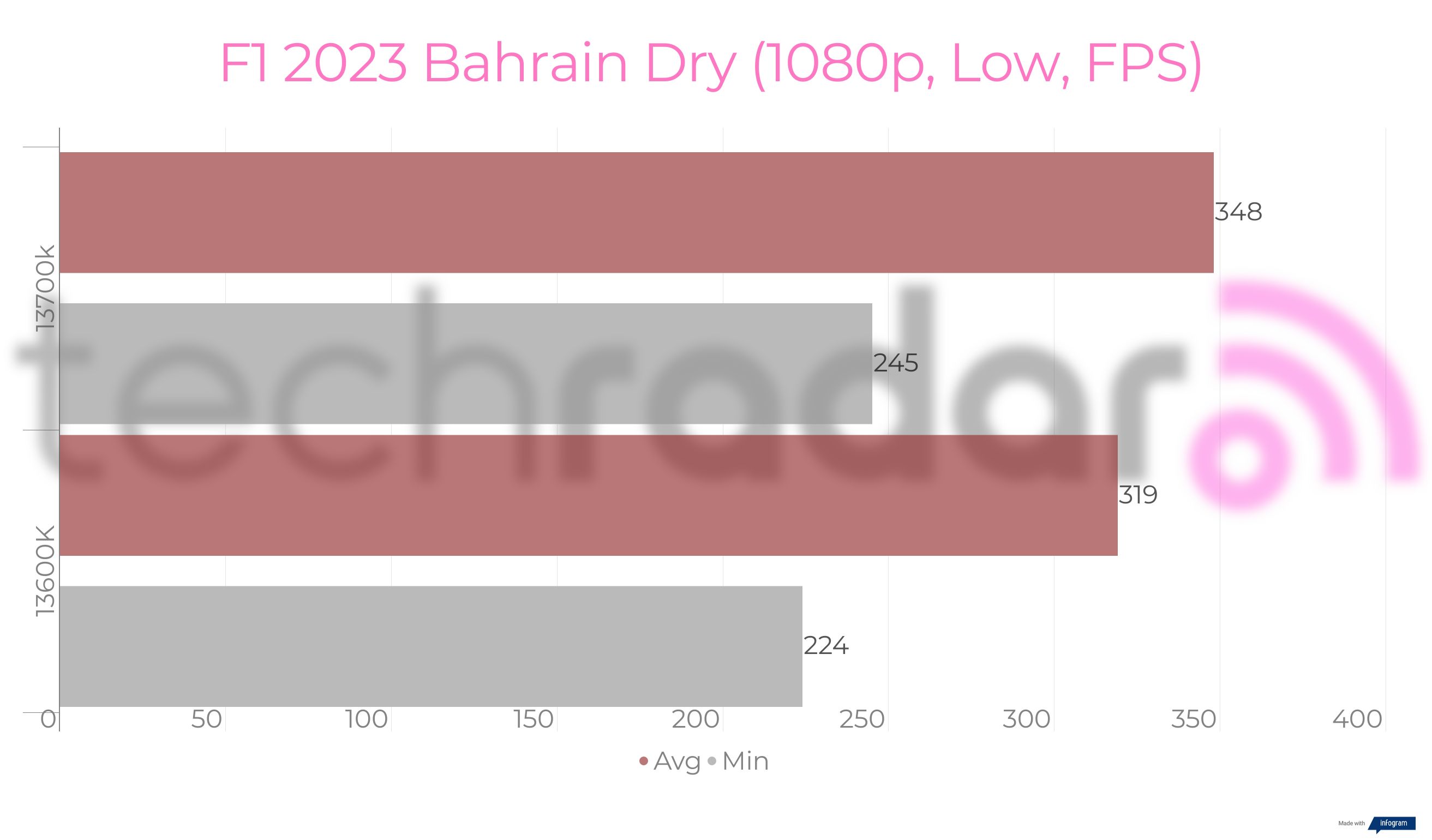
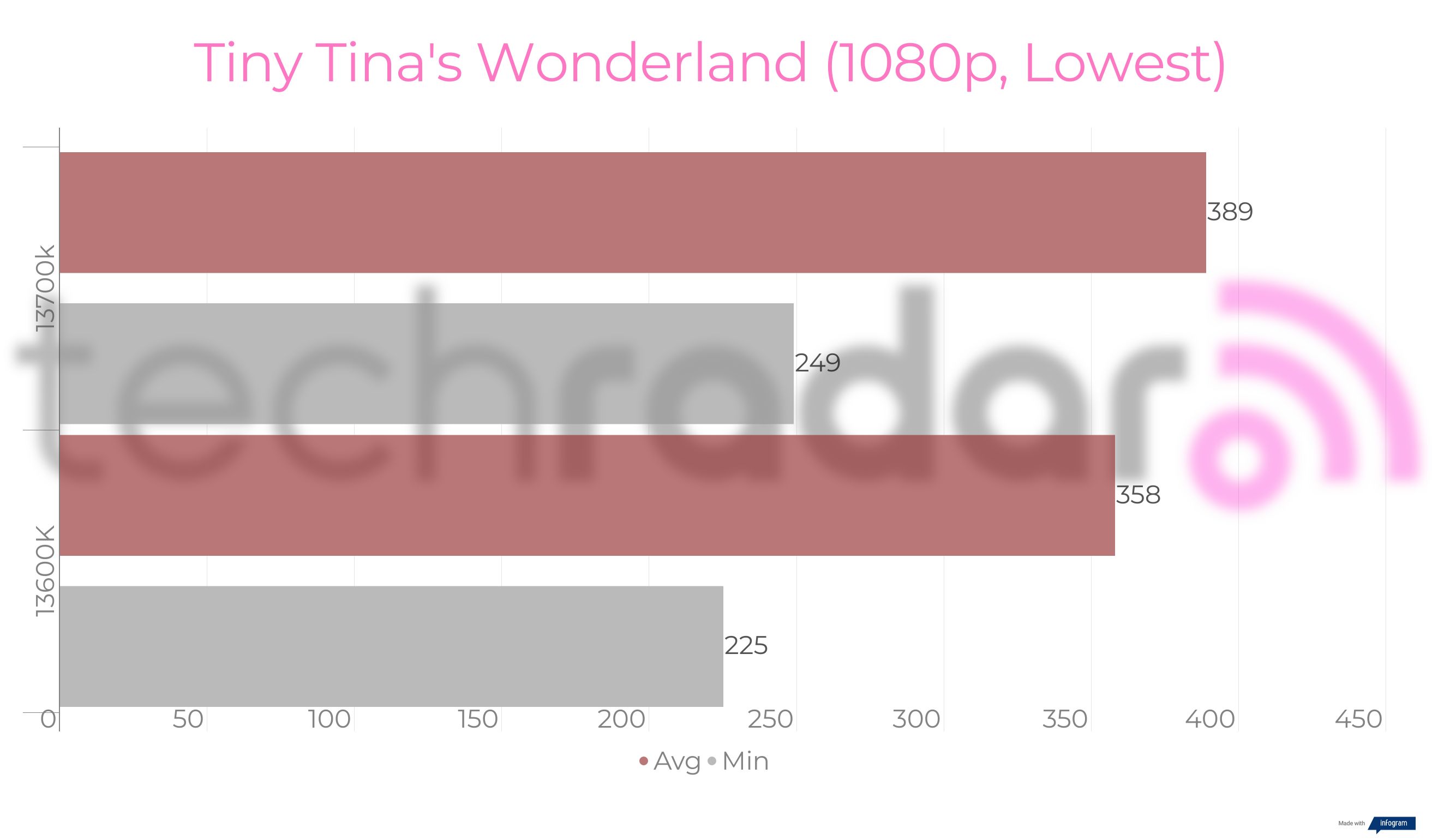
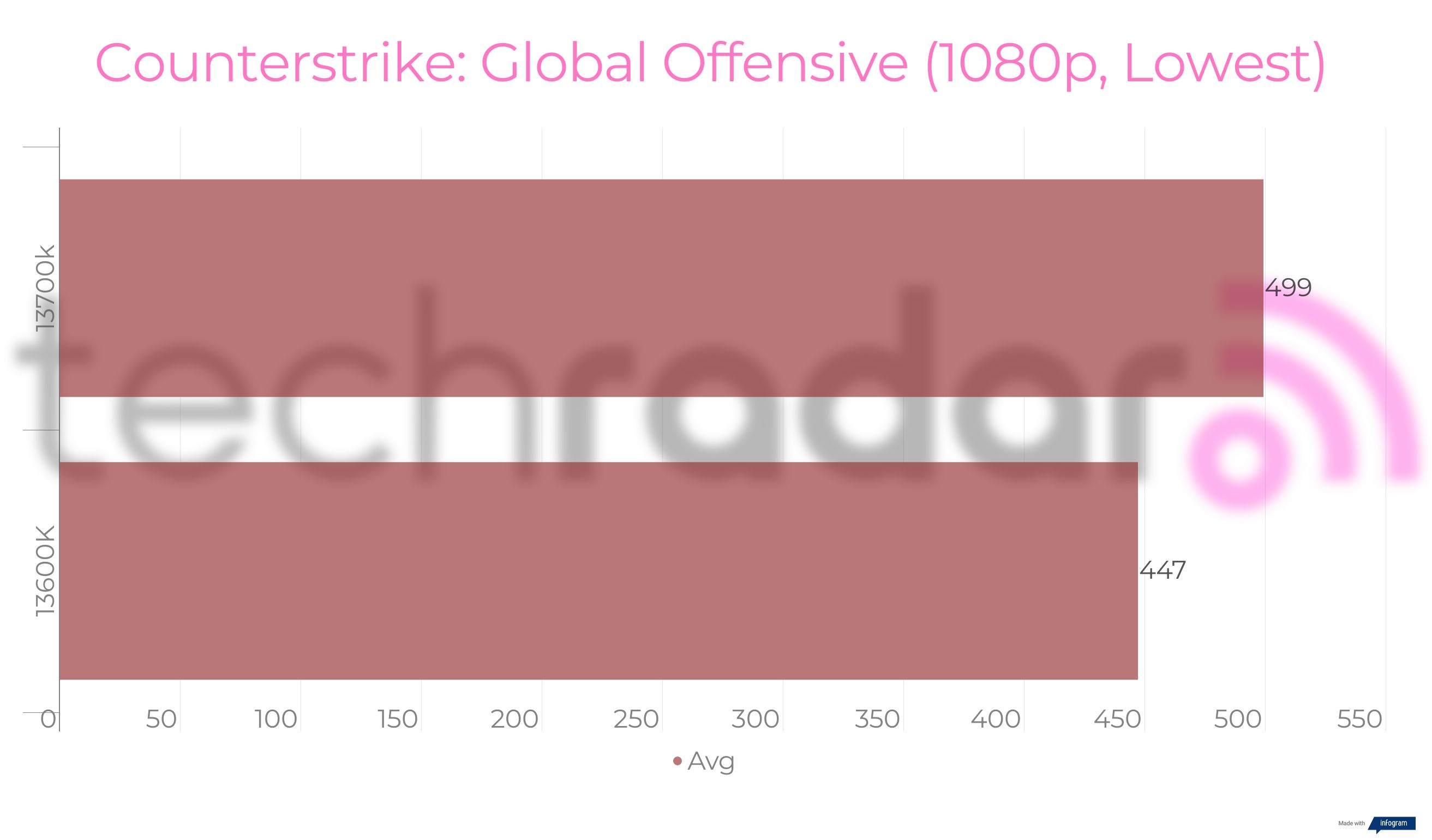
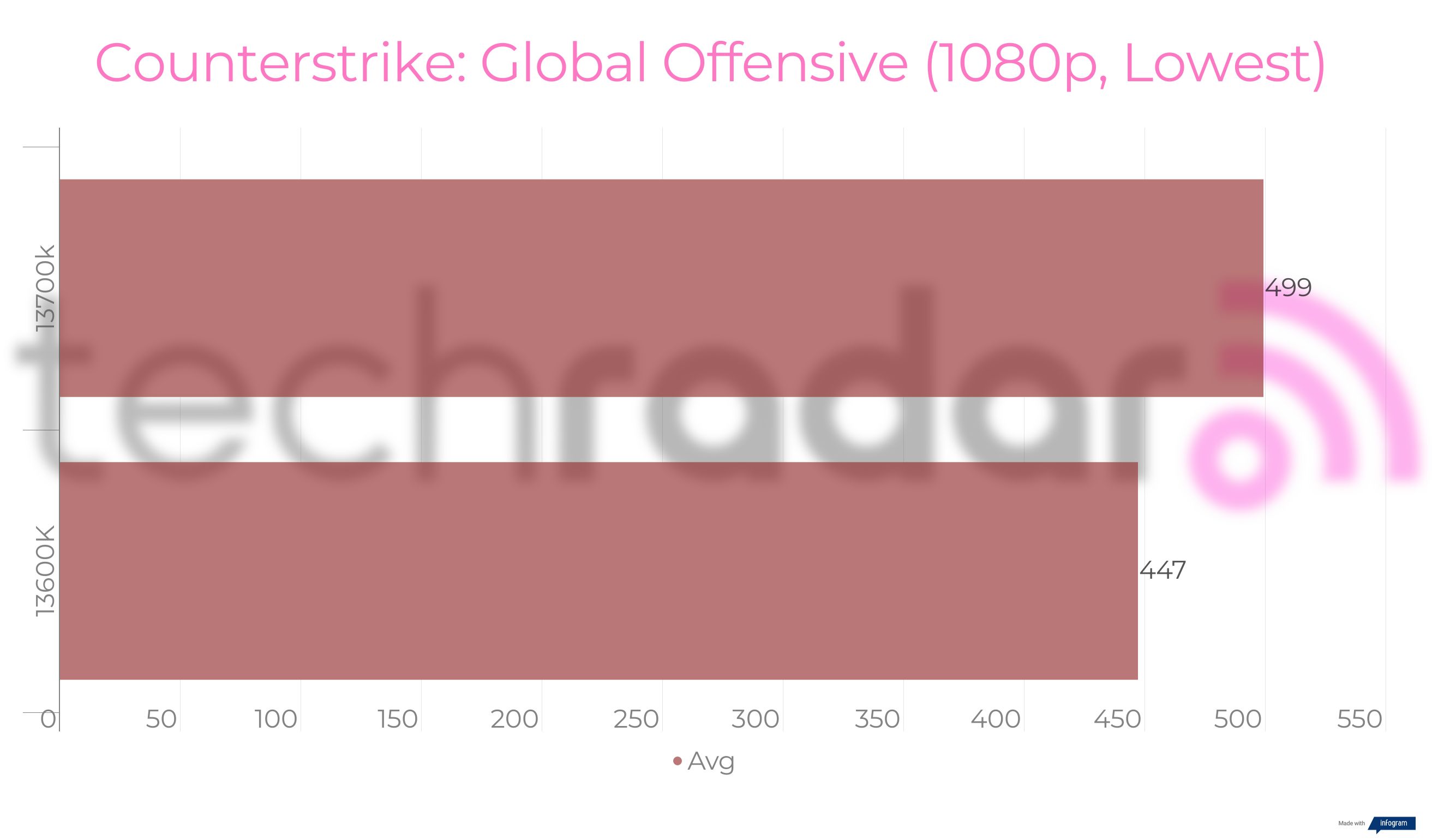
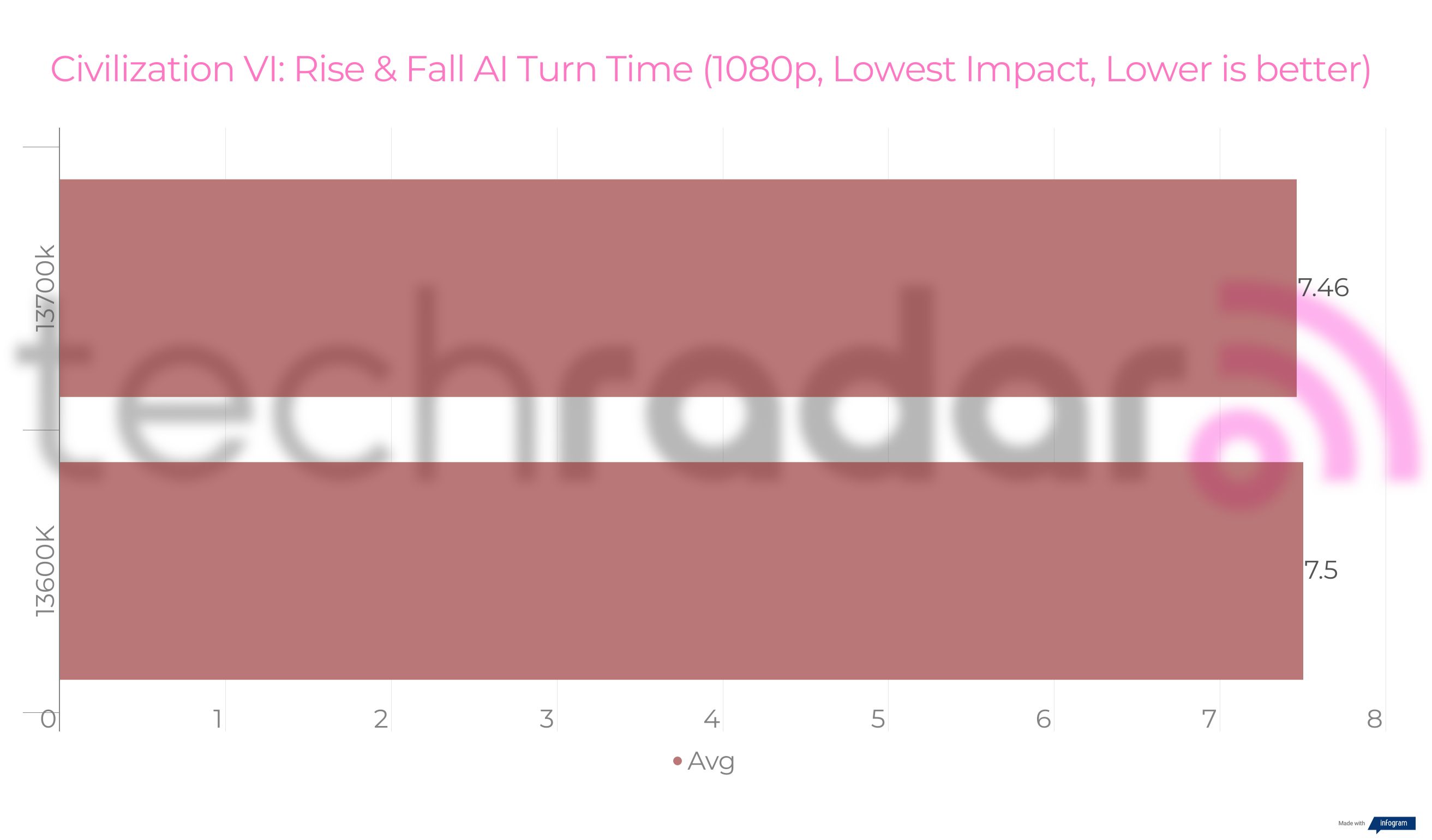
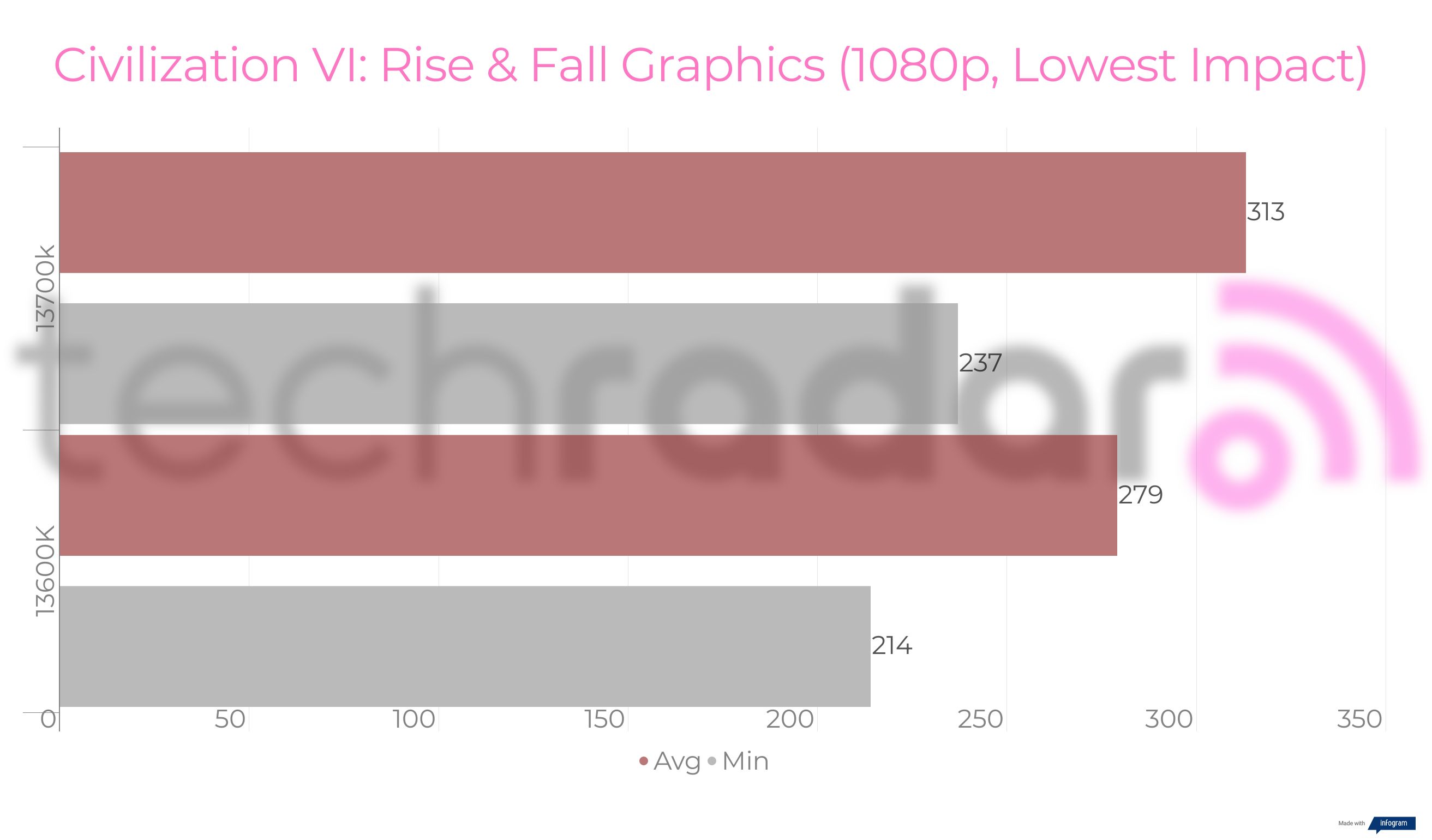
Gaming performance is also one of the 13700K strongest areas, with about 16% better gaming performance than the 13600K, with the 13700K averaging about 305 frames per second to the 13600K's 262.
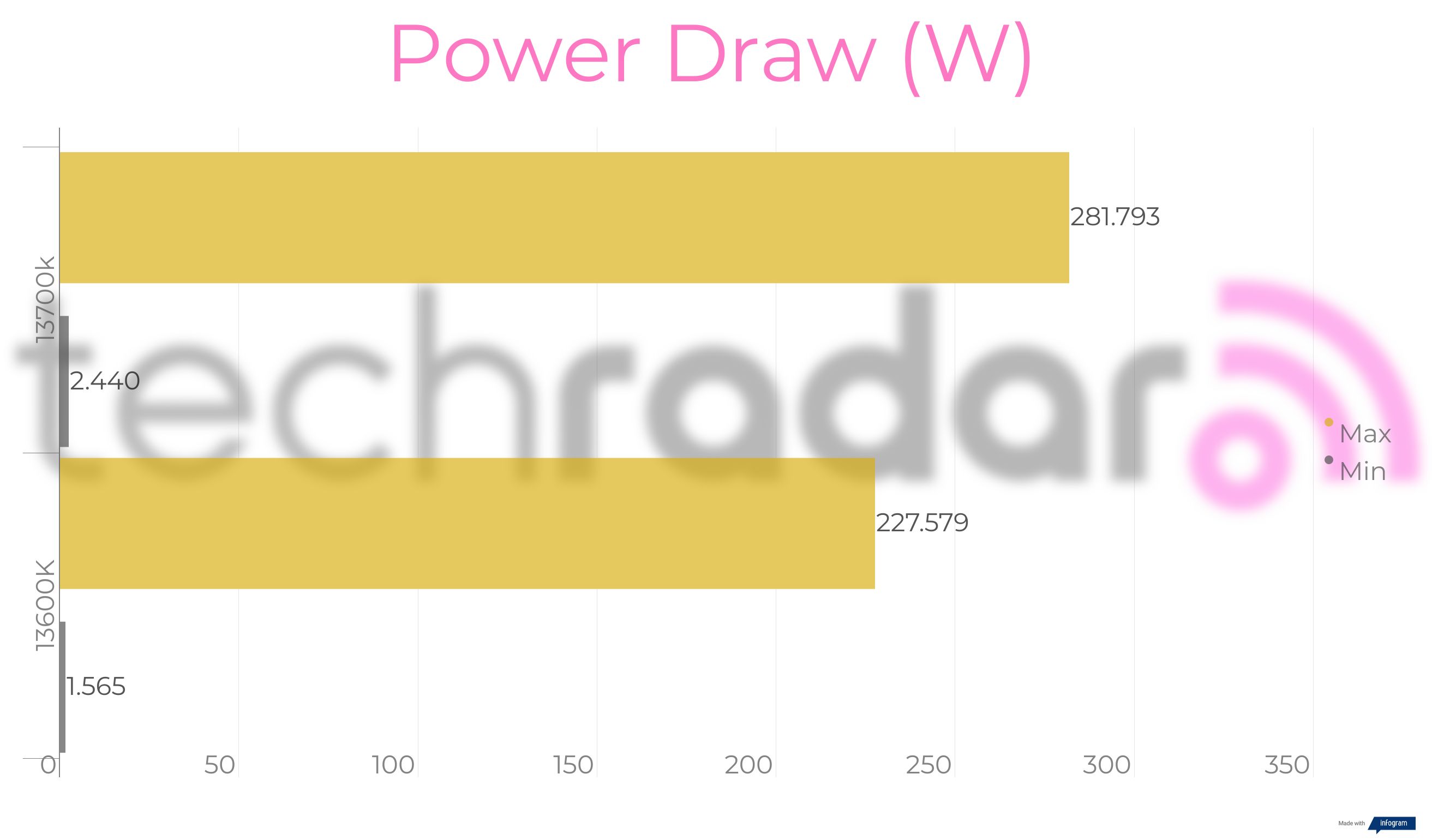
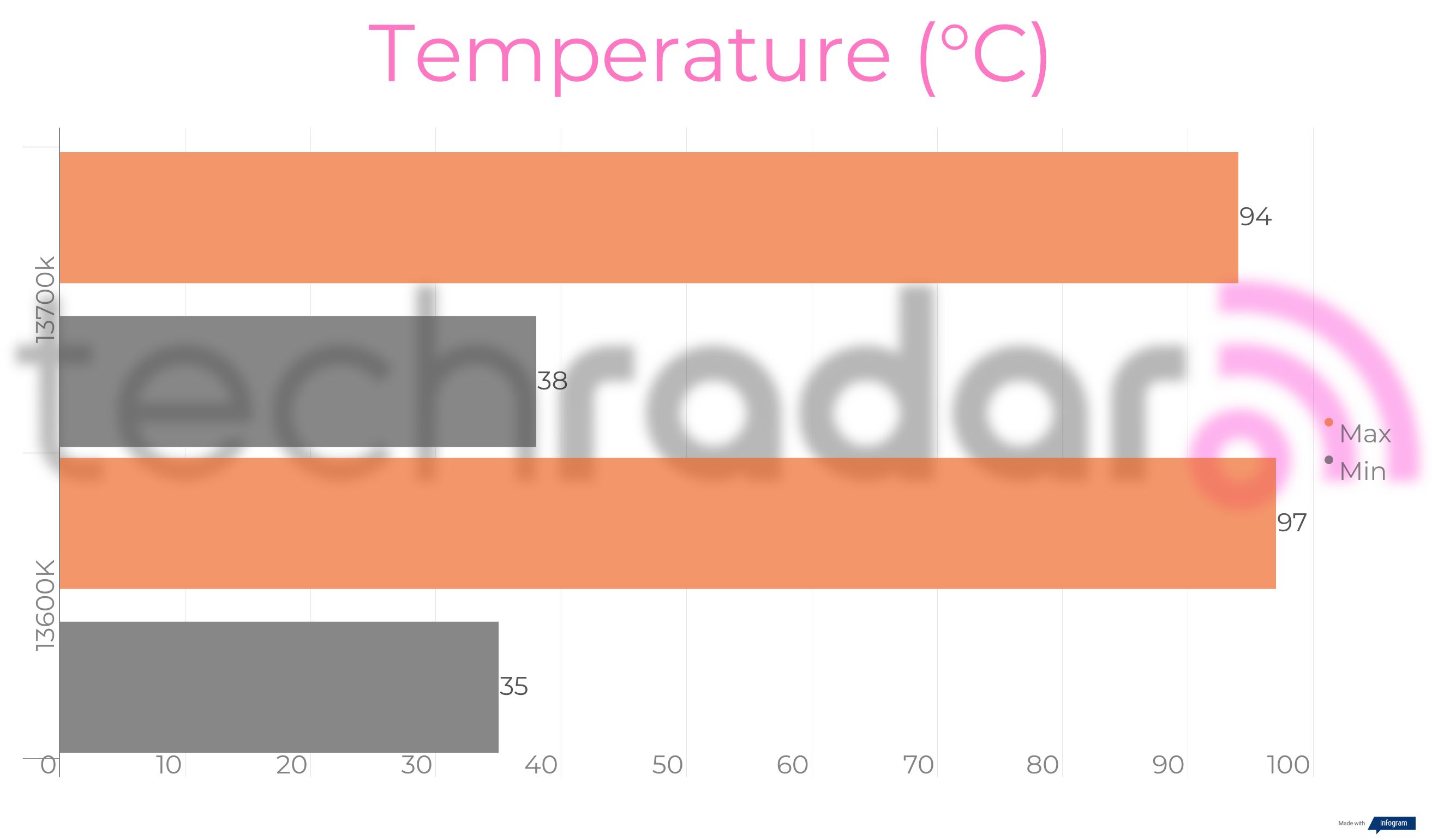
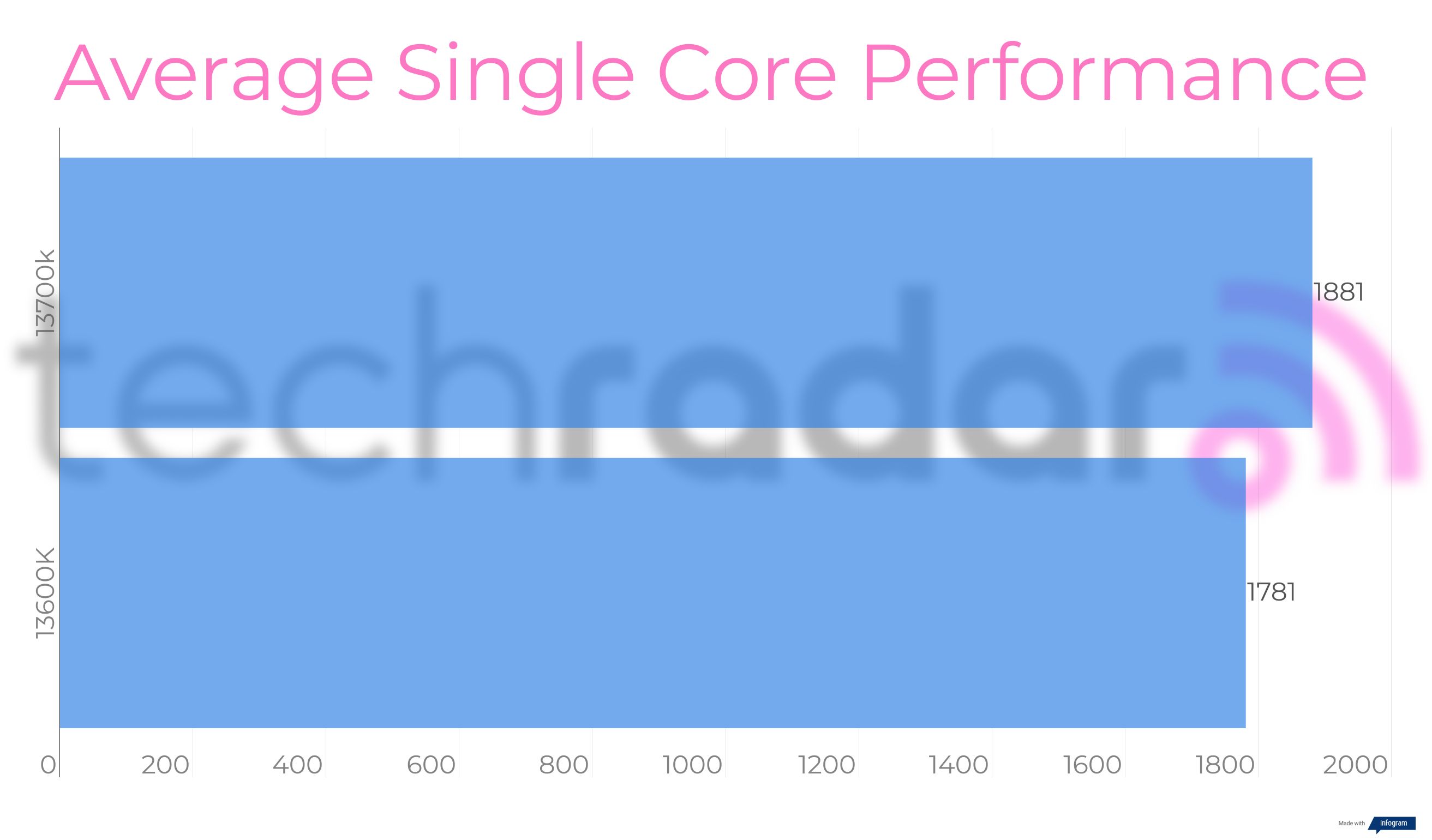
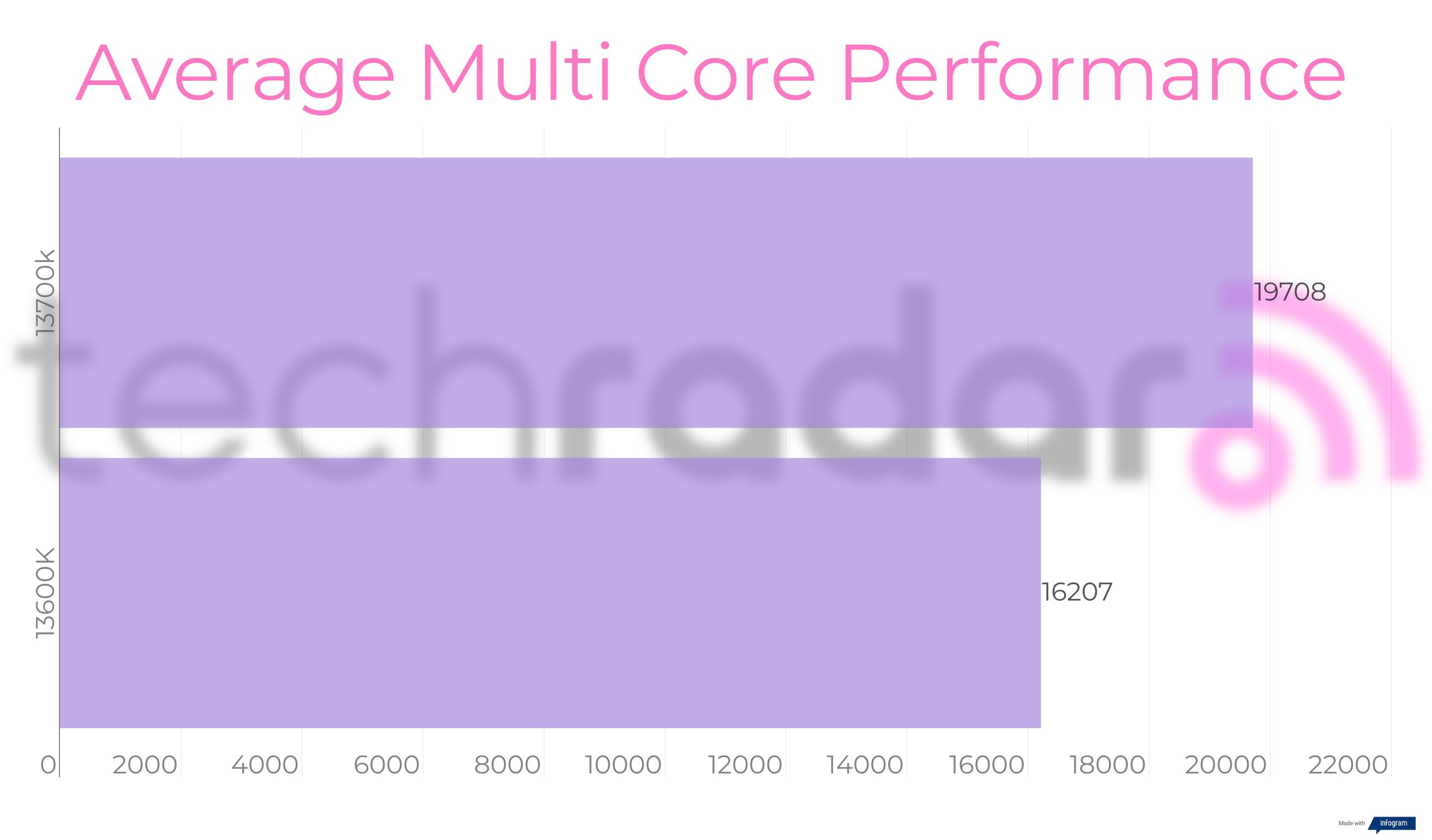
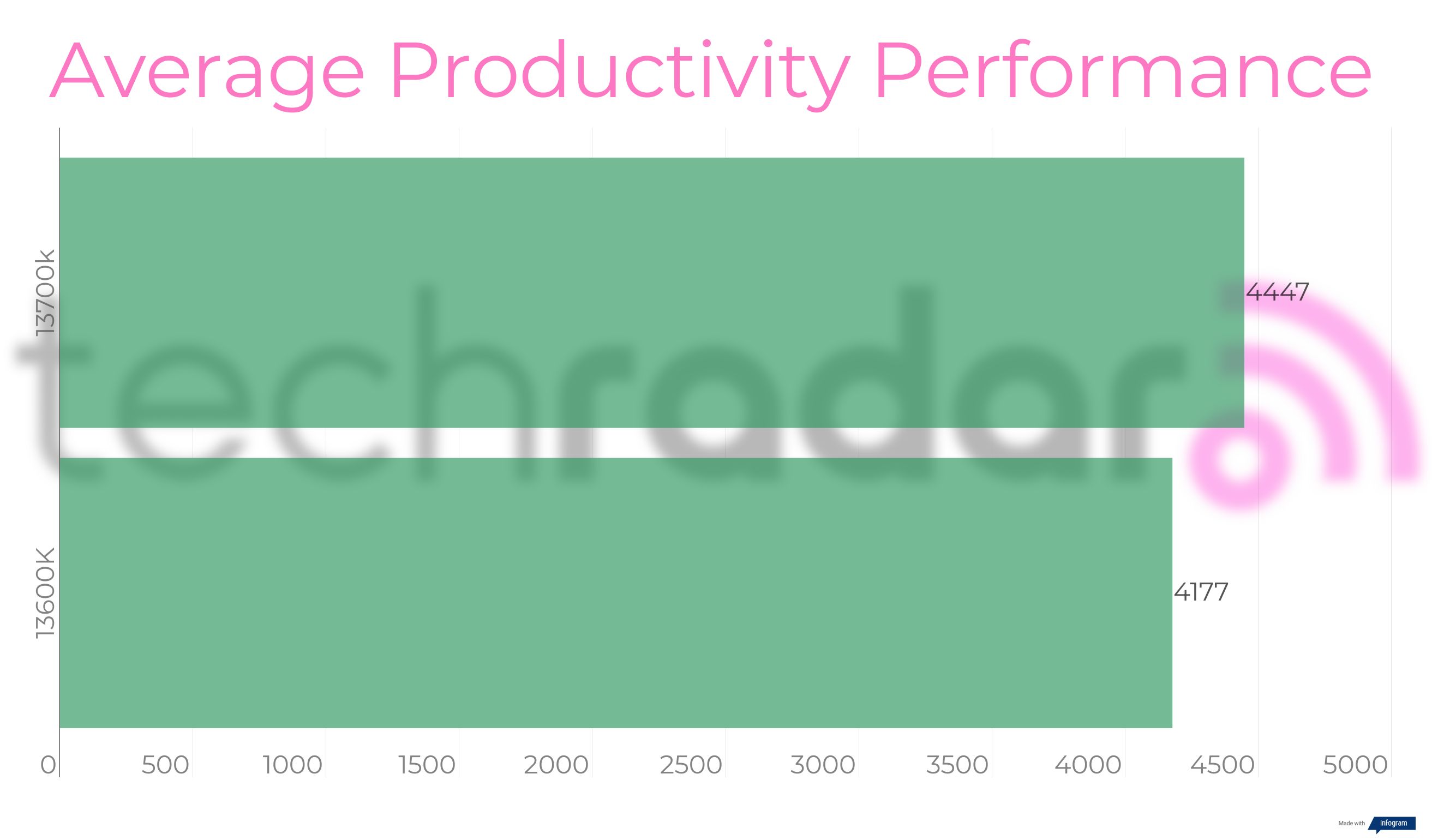
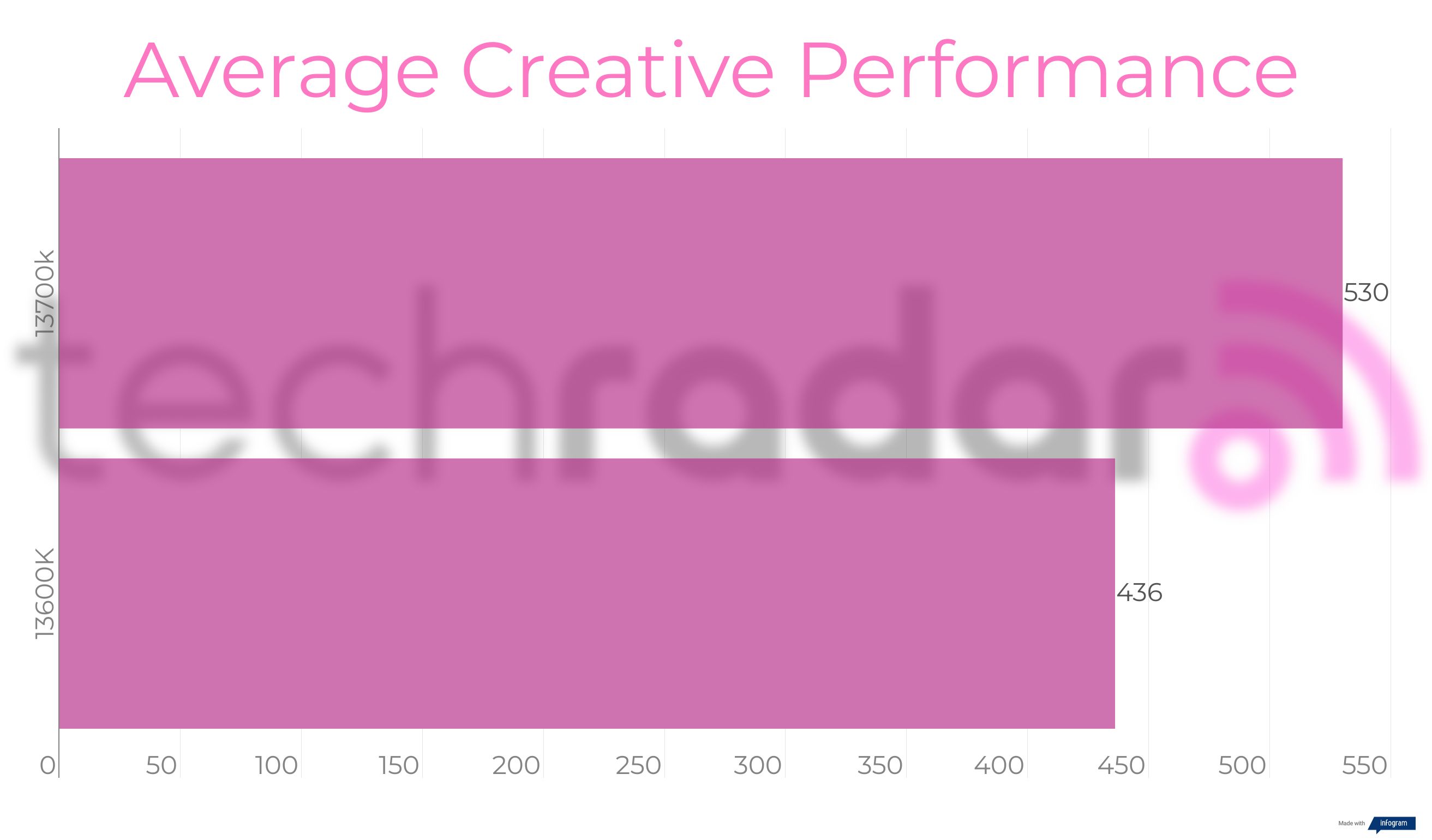
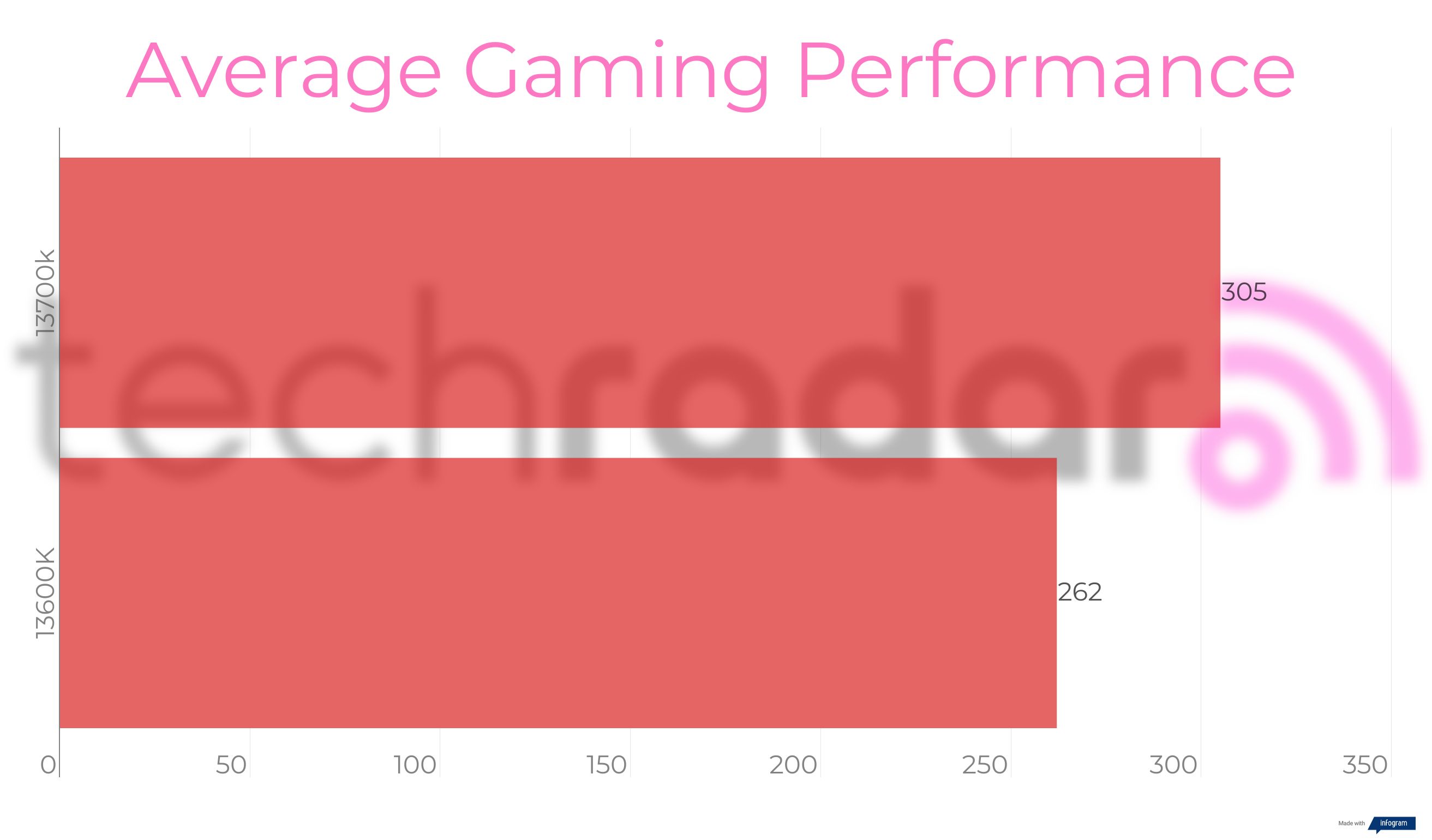
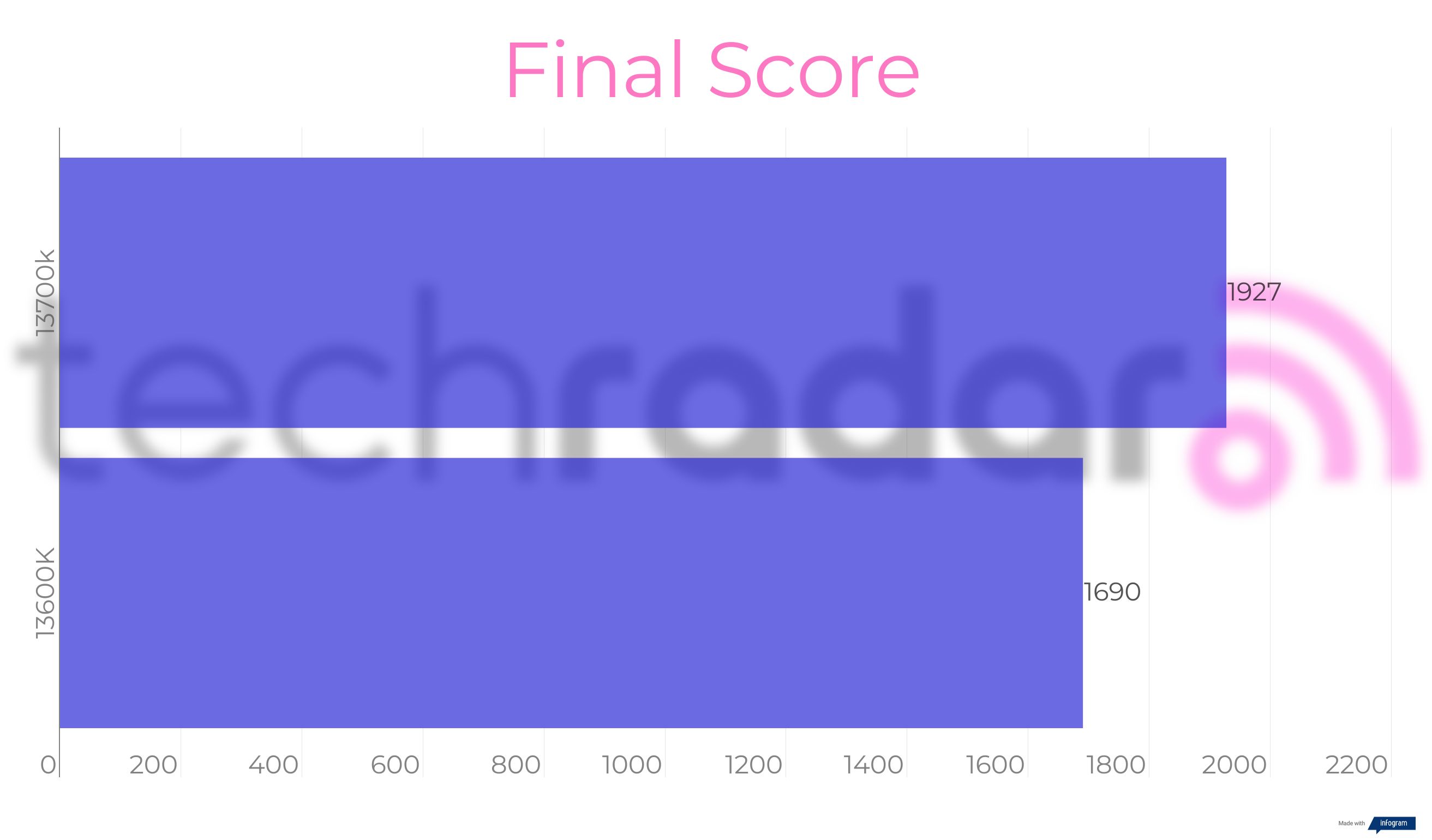
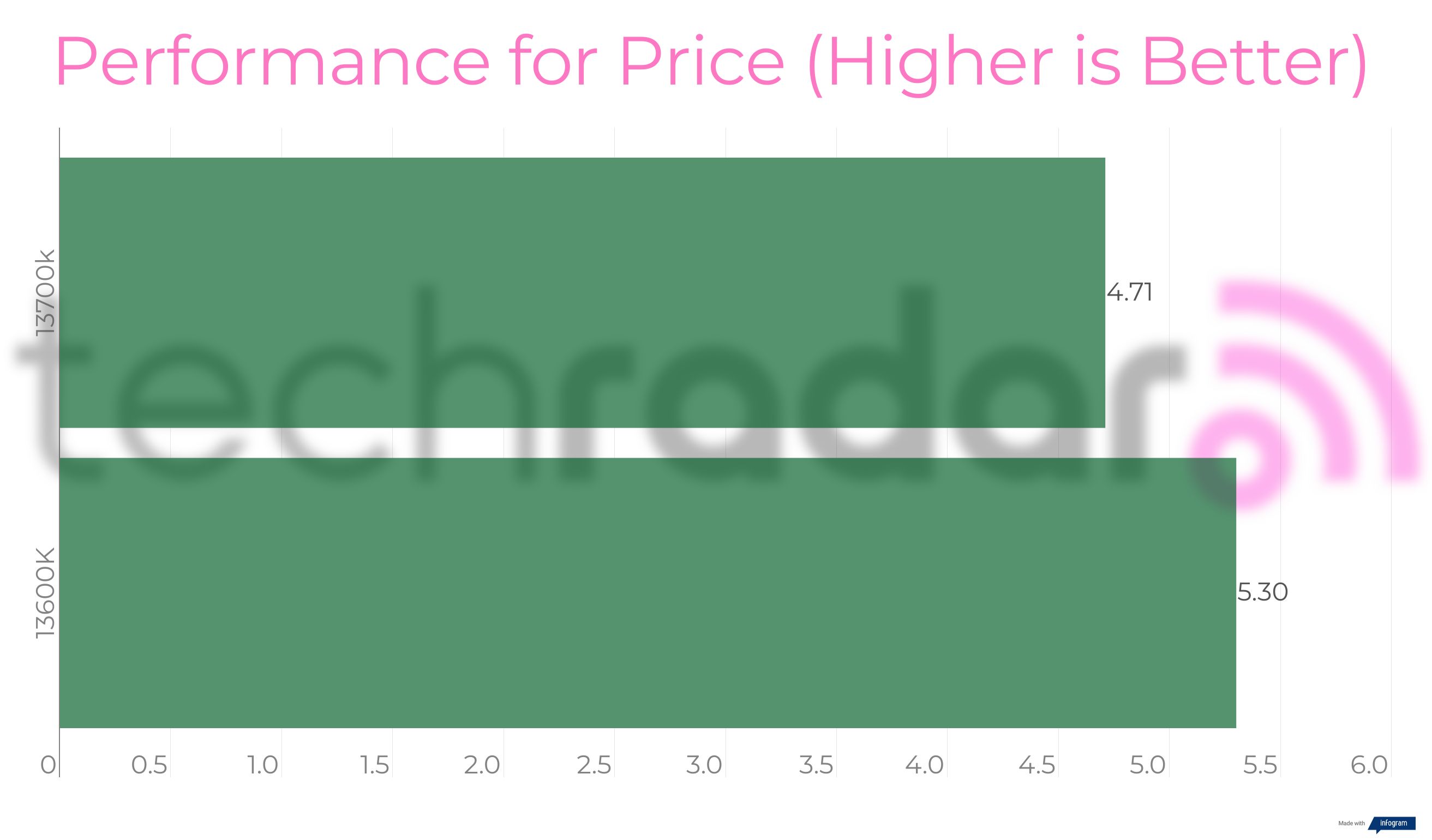
Finally, looking at thermals and power draw, the 13700K pulled down a maximum of 281.793W under load, compared to the 13600K's 227.579W, a roughly 24% higher power draw.
The 13700K managed to stay cooler than the 13600K though, which was surprising considering the higher max power. The 13700K hit a high temperature of 94°C, compared to the 13600K's 97°C, though it's worth noting that at no point in our tests did either chip throttle, according to HWINFO64.
Overall, the 13700K ourperformed the 13600K by about 14%, which is definitely a win for the i7-13700K, though the i5-13600K was able to put up respectable numbers in productivity and other single-core-dependent tasks.
- Winner: Core i7-13700K
Which one should you buy?
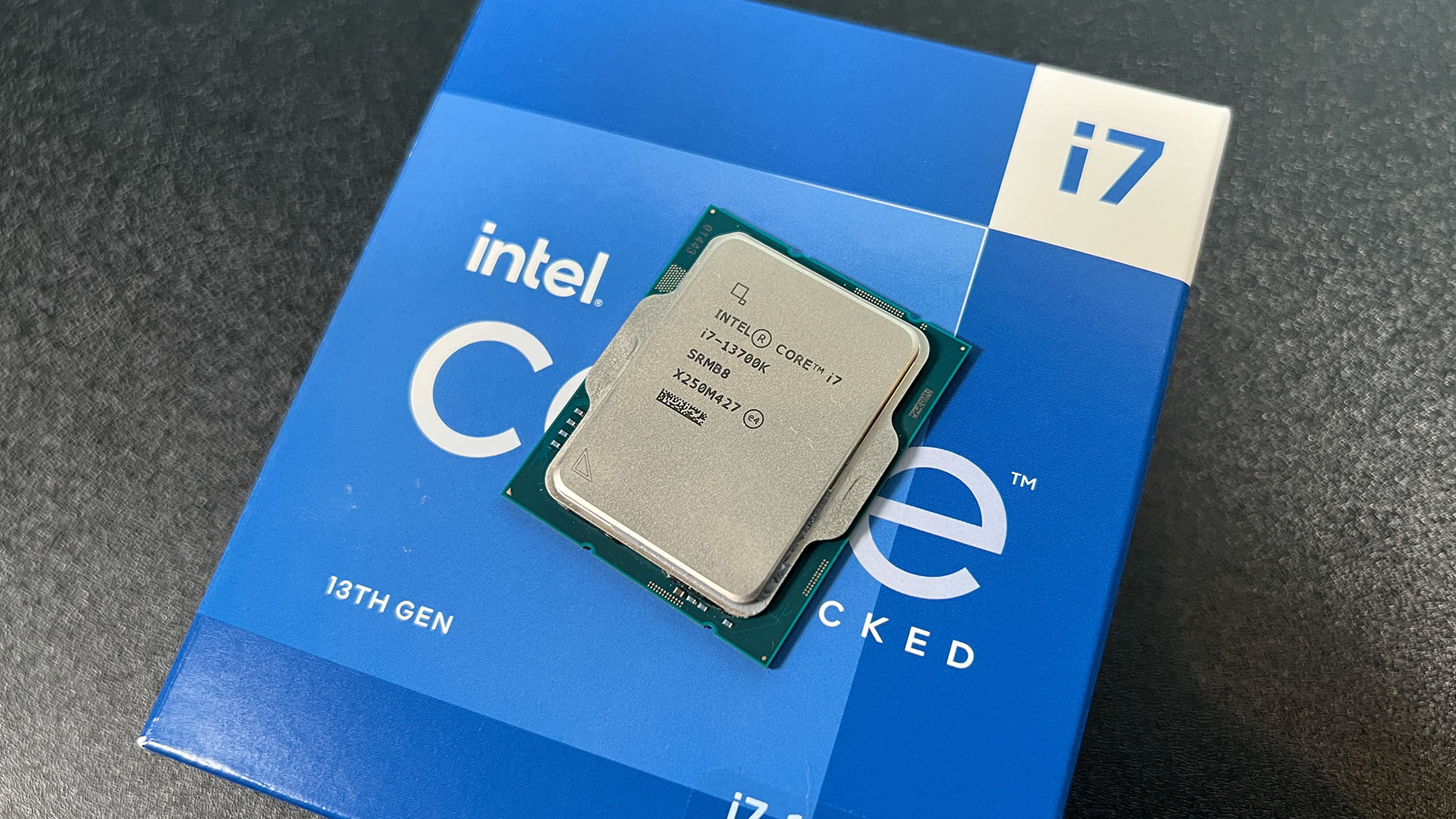
The way the 13600K vs 13700K breaks down is that the i5-13600K is a more mainstream processor meant for everyday use, basic to moderate productivity, light media editing (like working with family photos and video), and moderate gaming.
The Intel Core i7-13700K, meanwhile, is meant for more professional users who have more taxing workloads like professional designers, video editors, 3D modelers, and program developers. Gamers are also major targets for the 13700K, since many games require a lot of computational power at a fairly constant rate for long stretches of time, something very few other apps demand.
So with that breakdown laid out, if you're looking for something for more casual use on the family PC or you need a new processor for light to moderate business work like data entry or accounting work, the i5-13600K should be more than enough for your needs.
If you want to play the best PC games at the fastest possible frame rates (assuming you have the best graphics card for the job) or you need a workstation PC processor capable of handling a fairly heavy workload but you're not looking for industrial-scale computing power, than the Core i7-13700K is the perfect chip for you.

John (He/Him) is the Components Editor here at TechRadar and he is also a programmer, gamer, activist, and Brooklyn College alum currently living in Brooklyn, NY.
Named by the CTA as a CES 2020 Media Trailblazer for his science and technology reporting, John specializes in all areas of computer science, including industry news, hardware reviews, PC gaming, as well as general science writing and the social impact of the tech industry.
You can find him online on Bluesky @johnloeffler.bsky.social